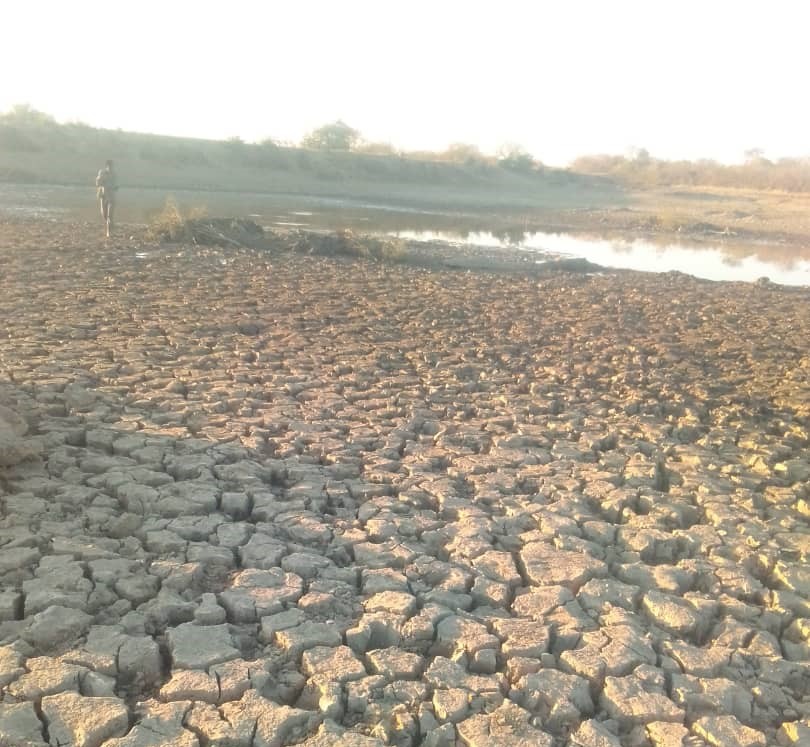
Addressing Zambia's Water Crisis: WFCF's Partnership With Kocebuka Community Foundation
By World Forgotten Children Foundation on January 7, 2025
The World Forgotten Children Foundation (WFCF) is excited to announce its latest funded project, aimed at combating the devastating effects of the ongoing drought in Zambia. In collaboration with the Kocebuka Community Foundation (KCF), WFCF will fund $10,350.93 toward the Zambia Well Project, a transformative effort to provide clean water and enhance the resilience of a vulnerable community.
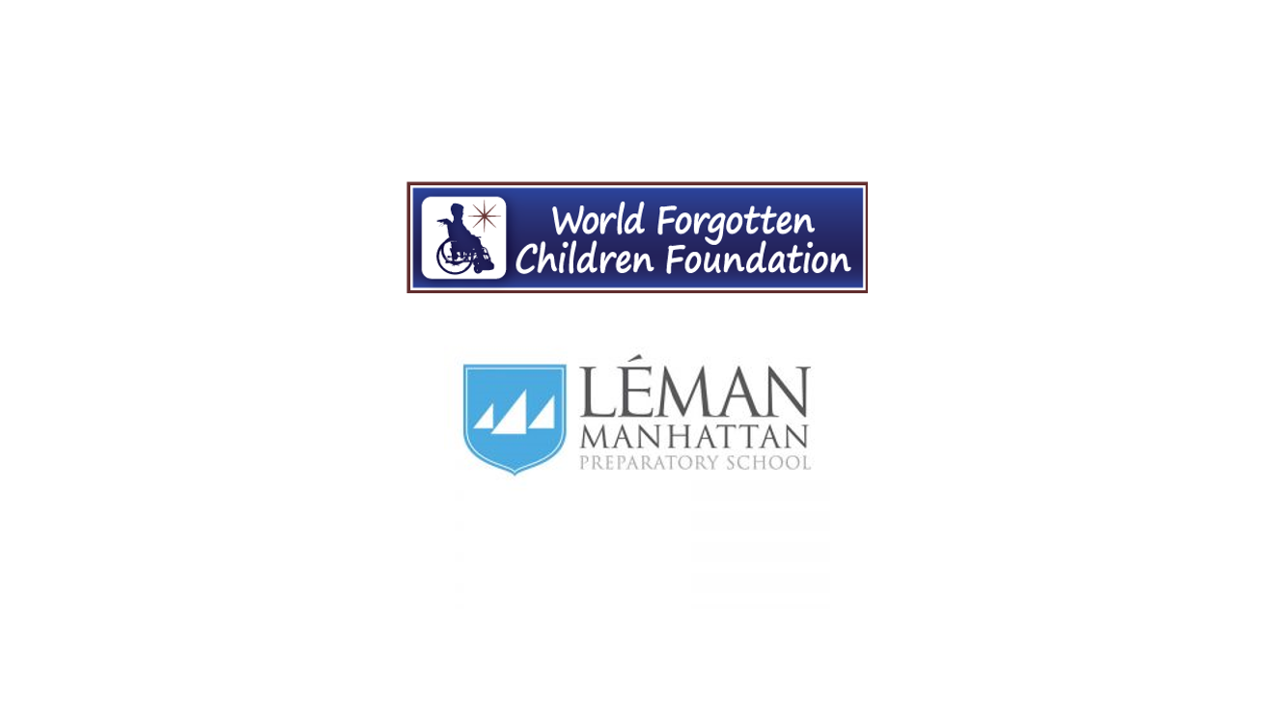
WFCF Sponsors Léman Manhattan Preparatory School’s Spring 2024 Gala With $10,000 Donation
By World Forgotten Children Foundation on December 30, 2024
The World Forgotten Children Foundation (WFCF) is proud to share that we sponsored Léman Manhattan Preparatory School’s Spring 2024 Gala. Organized by and supporting the Léman Community Association (LCA) Foundation, the event, held on Saturday, May 4, 2024, is the school’s largest annual fundraiser.

World Forgotten Children Foundation Donates $5,000 to NYSPCC to Support Child Protection Efforts
By World Forgotten Children Foundation on December 27, 2024
The World Forgotten Children Foundation (WFCF) is proud to share that on December 19, 2024, we donated $5,000 to the New York Society for the Prevention of Cruelty to Children (NYSPCC), the nation’s first child protection agency. Since its founding in 1874, the NYSPCC has been a trailblazer in child protection, influencing foundational laws and practices to safeguard children from abuse and neglect.

A Journey of Perseverance: Promoting Opportunities for People With Disabilities
By World Forgotten Children Foundation on December 16, 2024
Anchal Chauhan’s life story is a testament to resilience and determination. Born in New Delhi, Anchal’s life took an unexpected turn at the age of four when she suffered a spinal cord injury. Despite missing several years of school, she persevered, completing her education and excelling in extracurricular activities, from college festivals to fashion shows.
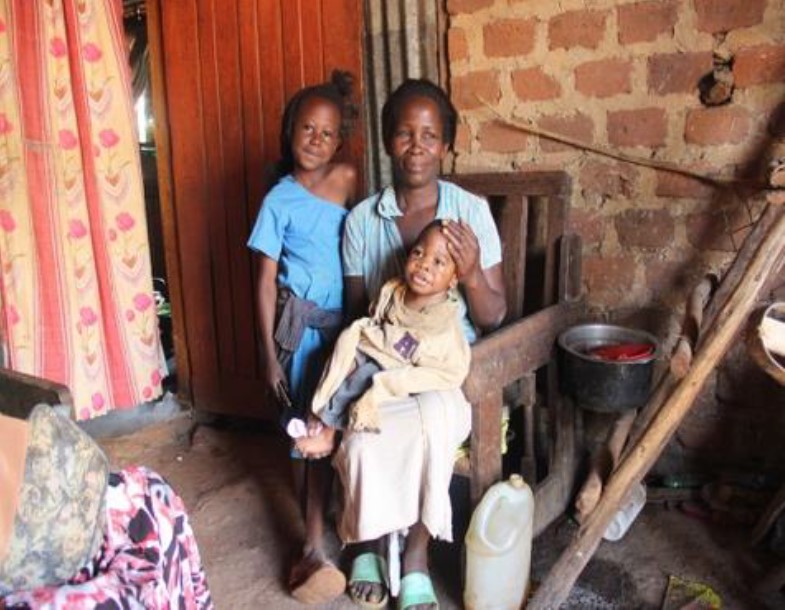
Promoting Inclusive Learning for Children With Disabilities in Uganda
By World Forgotten Children Foundation on December 5, 2024
World Forgotten Children Foundation (WFCF) is thrilled to announce its support for a transformative project in partnership with Arise Integrated Development Efforts (AIDE), a women-led nonprofit organization in Uganda. The Inclusive Learning for Children with Physical and Intellectual Disabilities project aims to create a more inclusive and supportive learning environment for children with disabilities in Goma Sub-county, Mukono District in Uganda. With your help, we can make a lasting impact on the lives of children who need it most.
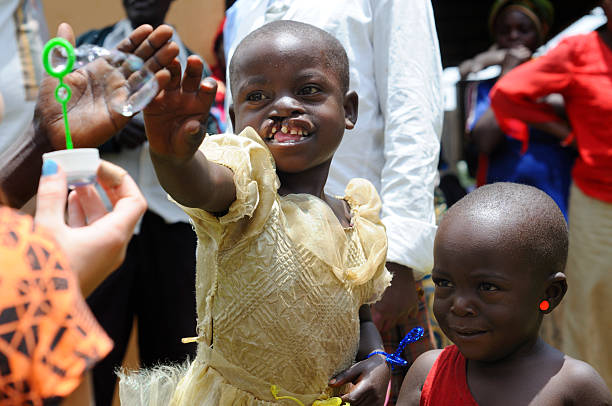
The Impact of Poverty on Children’s Risk of Cleft Lip and Cleft Palate
By World Forgotten Children Foundation on November 4, 2024
Cleft lip and cleft palate, collectively referred to as orofacial clefts, are among the most common congenital deformities worldwide, affecting thousands of children each year. These conditions occur when the tissues that form the lip or palate do not fuse properly during early pregnancy, resulting in a gap. While genetics play a key role, an increasing body of research reveals that socioeconomic factors, particularly poverty, significantly influence the likelihood of children being born with these conditions.
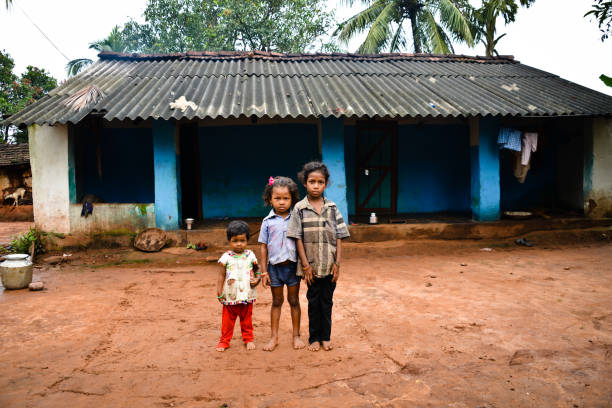
Startling Orphan Statistics in Tanzania: Addressing the Crisis and How to Help
By World Forgotten Children Foundation on October 18, 2024
Tanzania faces a profound orphan crisis, with over 2.6 million children currently living without one or both parents. This statistic is a clear indicator of the growing challenges that orphaned children face in the country, ranging from poverty and lack of education to vulnerability and exploitation. Several factors contribute to this high rate of orphanhood, understanding these drivers can help bring much-needed attention and resources to mitigate the crisis.
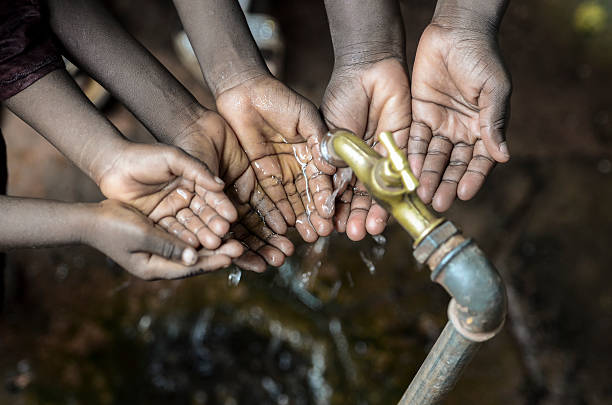
The Urgent Need for Clean Water in Africa
By World Forgotten Children Foundation on August 21, 2024
Access to clean water is a fundamental human right, yet millions of people across Africa still struggle to meet this basic necessity. For children living with disabilities in developing nations, this challenge is even more pressing. World Forgotten Children Foundation (WFCF) recognizes the importance of addressing not only medical needs but also broader issues like water scarcity, which directly impacts the health and well-being of vulnerable populations.
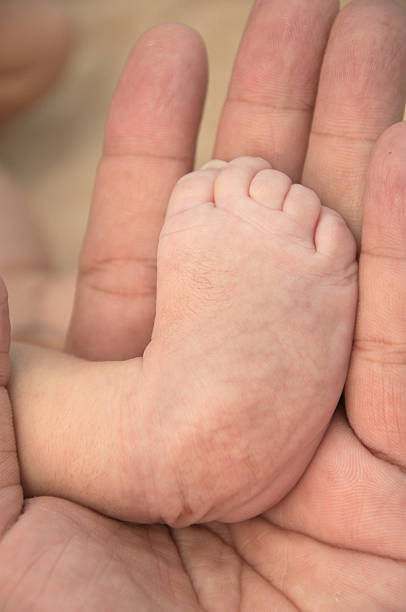
How Your Support Can Change the Lives of Children With Clubfoot
By World Forgotten Children Foundation on August 21, 2024
In wealthier nations, children born with clubfoot are typically treated soon after birth, allowing them to lead normal, active lives. However, in many developing countries, treatment is often inaccessible due to economic constraints, lack of trained healthcare professionals, and cultural stigmas. As a result, over 80% of untreated clubfoot cases worldwide are concentrated in low- and middle-income countries. In these regions, untreated clubfoot leads to significant physical disability, social isolation, and poverty, as children with this condition struggle to walk, attend school, or contribute to their communities.

Harnessing Extended Reality to Enhance the Lives of Children With Disabilities
By World Forgotten Children Foundation on July 25, 2024
At World Forgotten Children Foundation (WFCF), our goal is to improve the quality of life for children with disabilities worldwide. We are proud to spotlight the innovative work being done by researchers at the University of Alabama at Birmingham (UAB), where they are utilizing extended reality (XR) technology to significantly enhance the mental and physical health of children with disabilities.
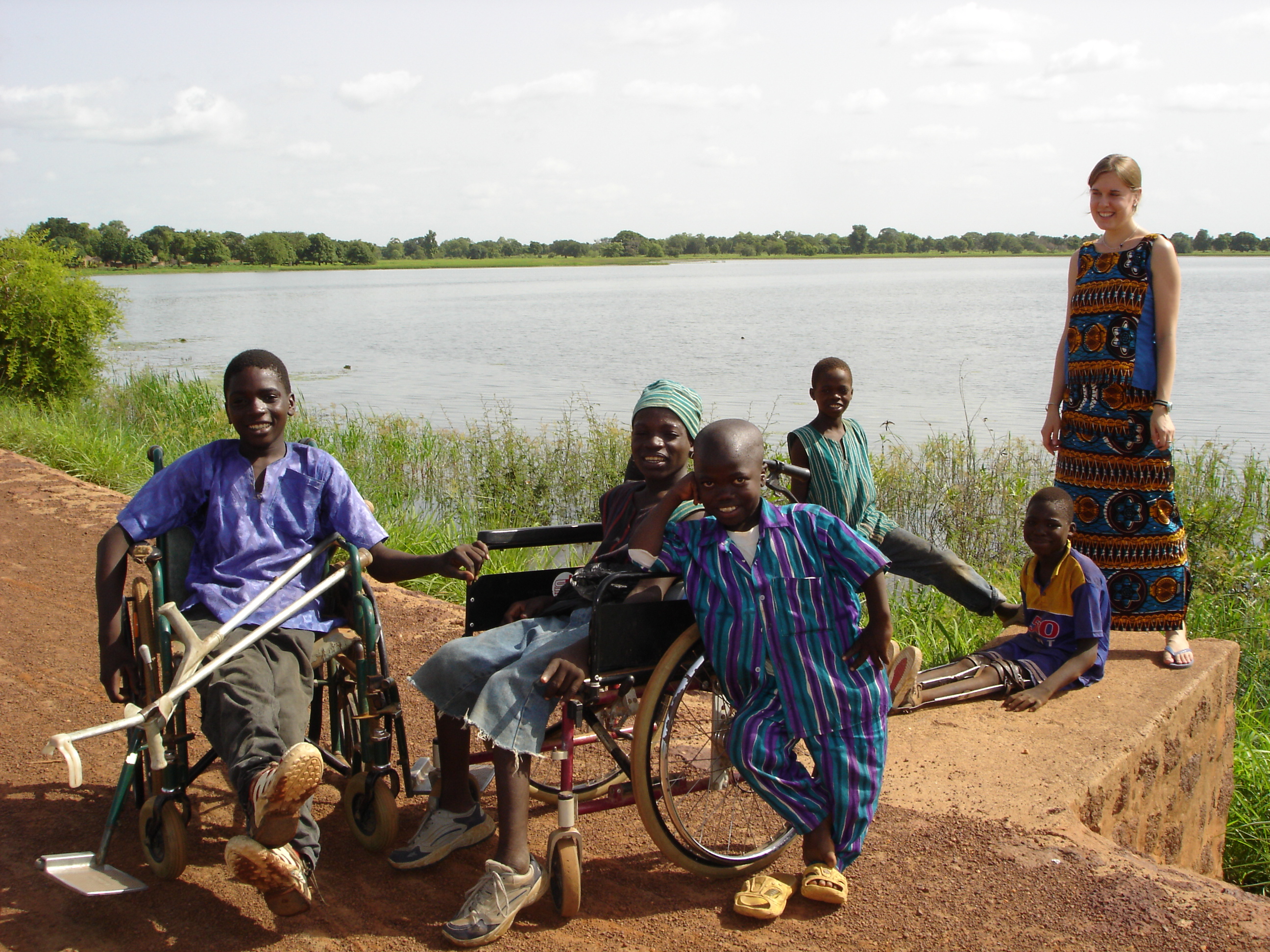
The Crucial Link Between Poverty and Disability
By World Forgotten Children Foundation on July 19, 2024
The intersection of poverty and disability presents a profound challenge for orphaned children in underserved regions. These children endure a dual hardship — not only do they lack parental care, but they also face physical or cognitive disabilities that severely limit their access to essential resources and opportunities. At World Forgotten Children Foundation (WFCF), our mission is dedicated to addressing these challenges and advocating for their fundamental right to a dignified life.

Understanding Albinism: Shedding Light on a Hidden Condition
By World Forgotten Children Foundation on May 31, 2024
Albinism, a condition often shrouded in misconception and stigma, remains a lesser-known aspect of human diversity. At World Forgotten Children Foundation (WFCF), we recognize the importance of shedding light on this condition, particularly among underprivileged communities and orphaned children with disabilities in developing countries. In this article, we aim to provide insight into what albinism is, why awareness is crucial, its prevalence, the challenges faced by individuals living with this condition, and how you can help.

The Importance of Digital Accessibility and Inclusive Design
By World Forgotten Children Foundation on May 28, 2024
At World Forgotten Children Foundation (WFCF), our mission is to support projects that promote the health and welfare needs of underprivileged communities and orphaned children with disabilities in developing countries. In our pursuit of creating a more equitable world, we recognize the critical importance of digital accessibility and inclusive design practices. As we reflect on the recent Global Accessibility Awareness Day (GAAD), held on Thursday, May 16, 2024, we underscore the significance of ensuring that digital technologies are accessible to all, regardless of ability.
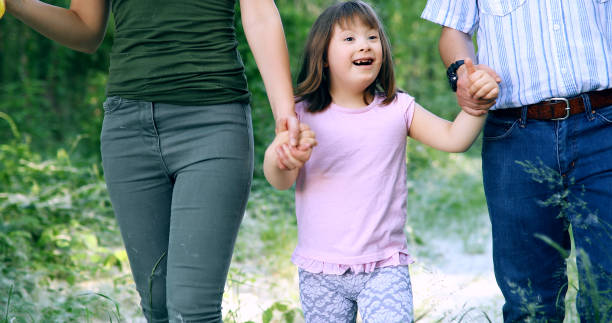
From Orphanages to Loving Homes: Advocating for Children with Disabilities Through Adoption
By World Forgotten Children Foundation on May 9, 2024
Explore the compelling reasons to open your heart to adopting children with disabilities, from fulfilling unmet needs to fostering resilience and forging lasting bonds. Together, let's champion inclusivity and acceptance, celebrating each milestone achieved by these extraordinary children. With a wealth of resources and genuine encouragement, we warmly invite you to join us on this deeply rewarding journey of making a meaningful difference in the lives of children with disabilities, supported by the compassionate advocacy of WFCF.
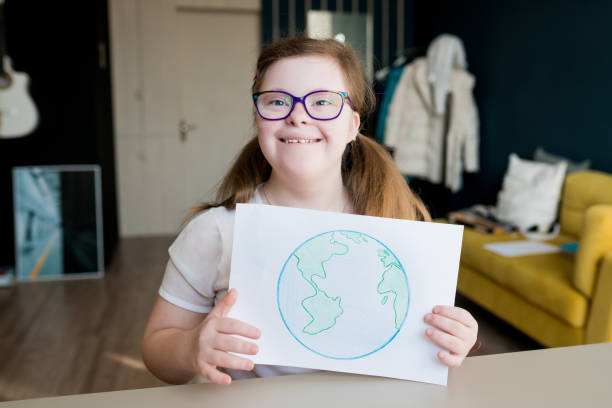
Celebrating World Down Syndrome Day 2024 by Ending The Stereotypes
By World Forgotten Children Foundation on March 21, 2024
As the world celebrated World Down Syndrome Day (WDSD) on March 21, 2024, the World Forgotten Children Foundation (WFCF) stood at the forefront of advocating for the rights and recognition of individuals with Down syndrome. This year's theme, "End The Stereotypes," highlighted the importance of challenging preconceived notions and fostering a more inclusive and understanding society.
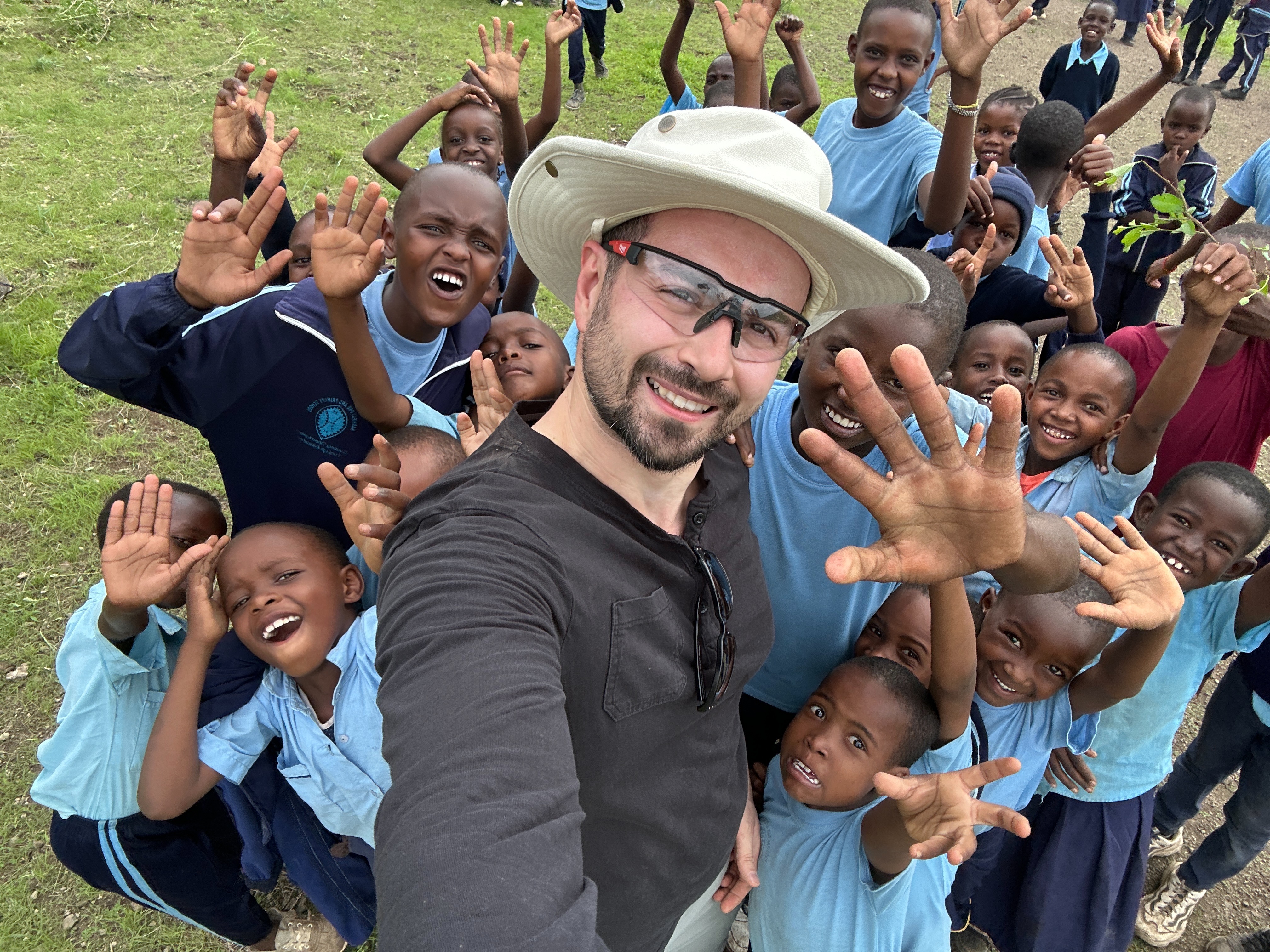
An Interview With Reza Marvasti, CEO and Founder of The Power of Play
By World Forgotten Children Foundation on February 13, 2024
On November 17, 2023, the World Forgotten Children Foundation (WFCF) generously contributed $6,300 USD to support The Power of Play's initiative: create a sensory playground for children in the Maasai community of Tanzania. After The Power of Play completed the project, WFCF reached out to Reza Marvasti, CEO and Founder of The Power of Play, who has graciously reflected on his experiences.
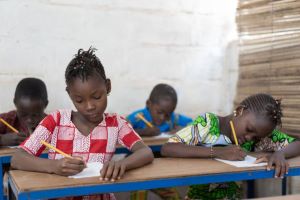
International Day of Education 2024: "Learning for Lasting Peace"
By World Forgotten Children Foundation on January 23, 2024
The sixth International Day of Education was celebrated on Wednesday, January 24, 2024, with the theme of “learning for lasting peace.”
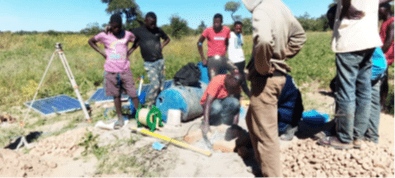
Update on the Solar-Powered Water System Project in the Zimba District
By World Forgotten Children Foundation on December 22, 2023
Read about a project update on the solar-powered water system installation at the Republic of Hope’s Bulangzi Garden and Orchard Complex.
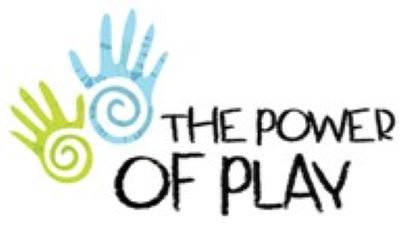
WFCF's Contribution Fuels The Power of Play's Mission in the Maasai Community
By World Forgotten Children Foundation on November 27, 2023
The World Forgotten Children Foundation recently contributed $6,300 USD to support The Power of Play's initiative: the creation of a sensory playground for children in the Maasai community of Tanzania.
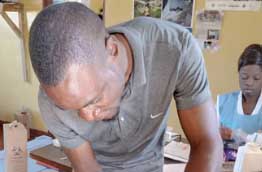
Kocebuka Community Foundation’s Fight Against COVID-19 in Zambia
By World Forgotten Children Foundation on November 27, 2023
On January 13, 2023, World Forgotten Children Foundation funded $4,000 USD to Kocebuka Community Foundation’s efforts aimed at immediate COVID-19 information dissemination, vaccination, and behavior change communication in the rural communities of Zambia.
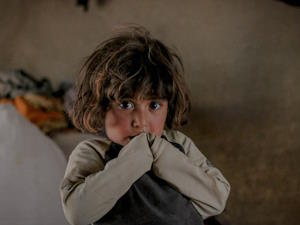
What is the Outlook for Disabled Children in Orphanages?
By World Forgotten Children Foundation on September 18, 2023
Too often children with disabilities become too large a burden for families in developing countries to care for as families may not be equipped to handle the additional financial and caretaking responsibilities needed.

Embracing Diversity
By World Forgotten Children Foundation on August 1, 2023
In an ideal world, every child would be welcomed with open arms, regardless of their abilities or disabilities. However, the reality is that disabled children often face exclusion, prejudice, and a lack of opportunities in our society.
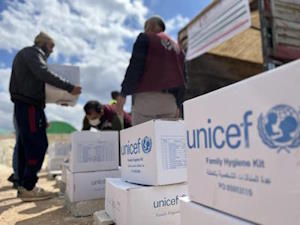
Supporting Children at Risk from Syria and Türkiye Earthquake Devastation
By World Forgotten Children Foundation on June 13, 2023
Southeast Turkey and the Northwest region of Syria suffered from a devastating powerful earthquake of 7.8 magnitude and a second quake magnitude 7.5 shortly after causing mass destruction.
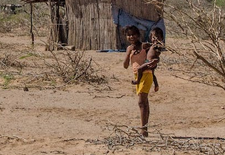
The Negative Impact of Water Access to Children in Poor Countries
By World Forgotten Children Foundation on May 25, 2023
Access to clean water is a fundamental human right, yet millions of children in poor countries suffer from a lack of access to this basic necessity.

Why it is Important to Support Children that are Orphaned and are Living with Disabilities in Poor Countries?
By World Forgotten Children Foundation on May 25, 2023
It is a tragic reality that there are millions of children around the world who are orphaned and living with disabilities in poor countries. These children face immense challenges and often lack access to basic necessities such as food, shelter, healthcare, and education. It is important for society to support these vulnerable children as they are among the most marginalized and at-risk groups in the world.

Children in Sudan at Risk as Conflict Continues
By Samhar Almomani on May 17, 2023
The United Nations (UN) recently reported that seven children are killed or wounded every hour in Sudan due to the ongoing conflict. The agency announced that it had received reports that over 190 children were killed and 1,700 injured only in the first 11 days of the conflict.
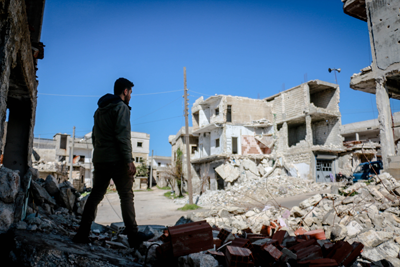
Syrian Children Struggle as Educational System Perishes
By Samhar Almomani on February 12, 2023
The death toll of the earthquake from last week in Syria and Turkey has surpassed 33,000. Many bodies are being found every day, and the devastation is unimaginable.
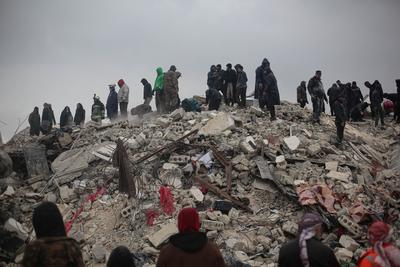
Catastrophic earthquake devastates Turkey, Syria
By Samhar Almomani on February 9, 2023
The latest estimates place the number of deaths at over 20,000 people with hundreds of thousands of people left homeless across Syria and Turkey. The earthquake, and numerous aftershocks that followed on February 6, 2023, resulted in thousands of children and families risking long-term devastation and instability.
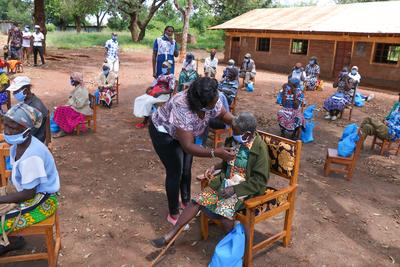
Eliminating Neglected Tropical Disease
By Samhar Almomani on February 2, 2023
Neglected tropical diseases earn their name because they do not attract the attention of researchers and donors. They are diseases that affect a small number of people annually, usually in impoverished regions, and so are not considered of major concern. However, NTDs actually affect close to 1.7 billion people globally, as many diseases are included in this category.
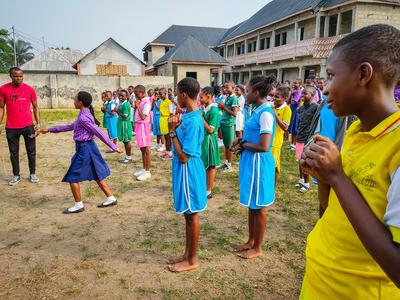
International Day of Education
By Samhar Almomani on January 24, 2023
On January 24 of every year, the world comes together to celebrate the importance of education and to recognize that many children lack the privilege of gaining an education. This year specifically, the United Nations announced that this year’s celebration of the International Day of Education will focus on Afghan women and girls, who are no longer permitted to get an education due to the ongoing civil war.
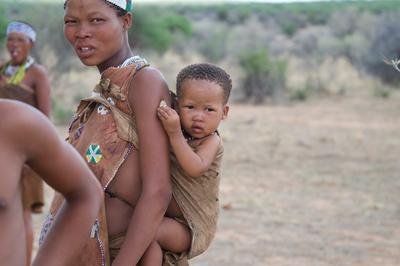
UN Report Shows a Child or Youth Dying Every 4.4 Seconds in 2021
By Samhar Almomani on January 16, 2023
The United Nations reported that an estimated 5 million children died before they reached the age of five and another 2.1 million children and youth between the ages of 5-24 lost their lives in 2021. During the same period, 1.9 million babies were stillborn. These deaths did not have to happen and could have easily been prevented if there was equitable access to medical care which would have allowed birthers, newborns, children and adolescents the care they need to remain healthy.

Disease Spotlight: Leishmaniasis
By Samhar Almomani on January 10, 2023
Leishmaniasis is a parasitic disease that is usually found in tropical and subtropical areas as well as in southern Europe. The parasitic infection is considered a neglected tropical disease (NTD), which is defined as diseases that infect a small portion of the population, often in poorer regions, and therefore do not receive funds or attention.
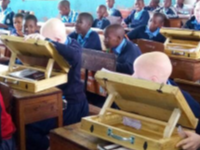
World Braille Day
By World Forgotten Children Foundation on January 4, 2023
World Braille Day is honored on the 4th of January and is a reminder of the integrity that people with disabilities deserve. In 2017, World Forgotten Children Foundation (WFCF) partnered with Under The Same Sun (UTSS) to provide $3,301 to purchase textbooks and reading stands for 70 students with albinism in Tanzania. Children with albinism often suffer a number of health risks due to their genetic condition, with visual impairment being one of those health risks that result in increasing stigma and discrimination.
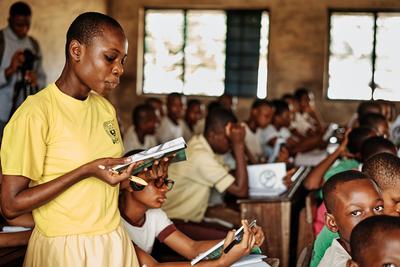
How to Help Children With Disabilities in 2023
By Samhar Almomani on December 28, 2022
There are currently 240 million children living with disabilities globally. Children with disabilities suffer many disadvantages, such as discrimination and low school enrollment rates. Half of the children that have disabilities are also out of school. They are invisible to us, as they are often abandoned by their governments and communities. Their families often do not have the resources to support them, meaning that they are left with no one to give them the resources they need to survive.
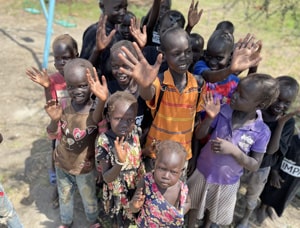
Giving Meaningfully This Holiday Season
By Samhar Almomani on December 22, 2022
World Forgotten Children Foundation (WFCF) has been supporting the health and welfare needs of children with disabilities living in developing countries since 2003, with a recently expanded mission to include projects that aid communities that these children live in as well as underdeveloped communities around the world.
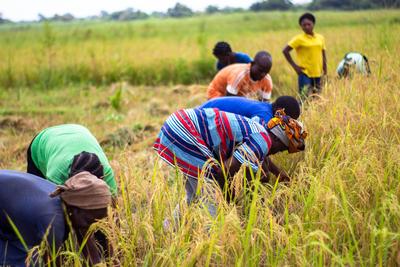
International Migrants Day
By Samhar Almomani on December 14, 2022
The world will come together on December 18 to celebrate International Migrants Day. This day has increasingly become of more prominence due to years of global conflict that has led to uncertain migration patterns following housing insecurity. Mainly, wars and climate change have resulted in millions of people migrating to other places in order to find a better life for themselves and their families. In 2020, there were over 281 million people who were international migrants, and there were over 59 people internally displaced as well.
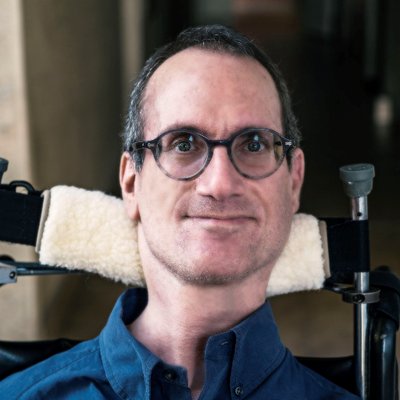
Disability Rights Advocate Ben Mattlin Interview with WFCF
By Samhar Almomani on December 8, 2022
Ben Mattlin is a writer, editor, and essayist in Los Angeles that writes about the Disability Rights movement and the many obstacles we need to overcome as a society in order to ensure equality between able-bodies individuals and people with disabilities. Learn more about his latest book and the continuing fight for disability rights.
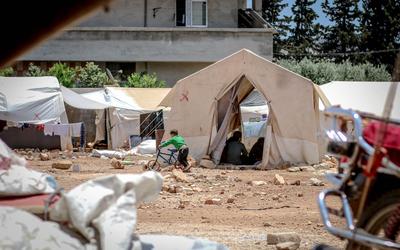
Making A Difference: Syrian Youth in the Za’atari Refugee Camp
By Samhar Almomani on November 29, 2022
Many youth who leave high school in the camp fail to find meaningful opportunities and struggle with making a major impact in their community. Hanadi was able to complete her education and earn a degree at a university, furthering her education and opening up many opportunities. Today, she is married to Tariq, who is helping raise their two joyful children and is continuing to encourage youth refugees in the area to pursue their dreams and further their dreams.
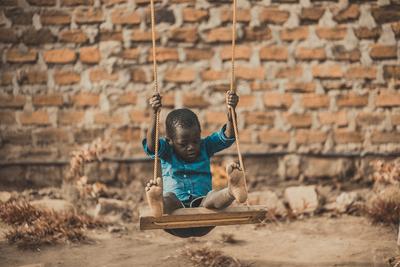
The Impacts of Heat Exposure on Maternal, Newborn and Child Health
By Samhar Almomani on November 23, 2022
The London School of Hygiene and Tropical Medicine (LSHTM) has launched a new initiative to address the major gaps in our knowledge of the effects of heat exposure on maternal, newborn and child health. LSHTM will begin the conversation with the World Health Organization and a number of other global partners interested in learning about the risks of intense heat exposure, especially with climate change increasing those exposure risks.
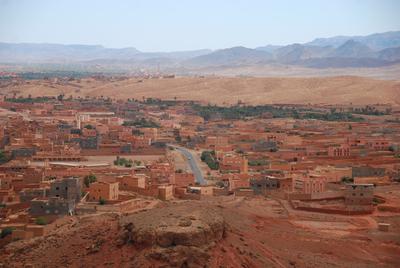
Climate Crisis Threatens the Horn of Africa
By Samhar Almomani on November 16, 2022
This year’s poor rainfall season will mark the fourth consecutive year of African countries struggling with increasing food prices and more conflict that has led children and families to experience the worst bouts of climate-induced disasters.

Disease Spotlight: Buruli Ulcer
By Samhar Almomani on November 7, 2022
Buruli ulcer, which is a neglected tropical disease (NTD), is a bacterial disease that mainly affects the skin and bones. The disease is caused by Mycobacterium ulcerans, a bacterium. Cases of Buruli ulcer are usually found in the tropics, mainly in West Africa and Australia.

Inflation Continues to Impact Nonprofit Organizations
By Samhar Almomani on November 3, 2022
Nonprofit organizations worldwide have been facing the destructive effects of inflation and urgently need financial help to ensure that children and families receive the help they need. Here at World Forgotten Children Foundation, one of our core missions is providing help for orphaned children with disabilities. Our past projects have helped children with disabilities all over the world, and we hope to continue our work. At WFCF, we are committed to our promise that 95 cents out of every $1.00 donated to WFCF is used in support of WFCF funded projects, so you can be assured that your donation will be used to help children around the world.You, too, can help us achieve our mission by donating today!
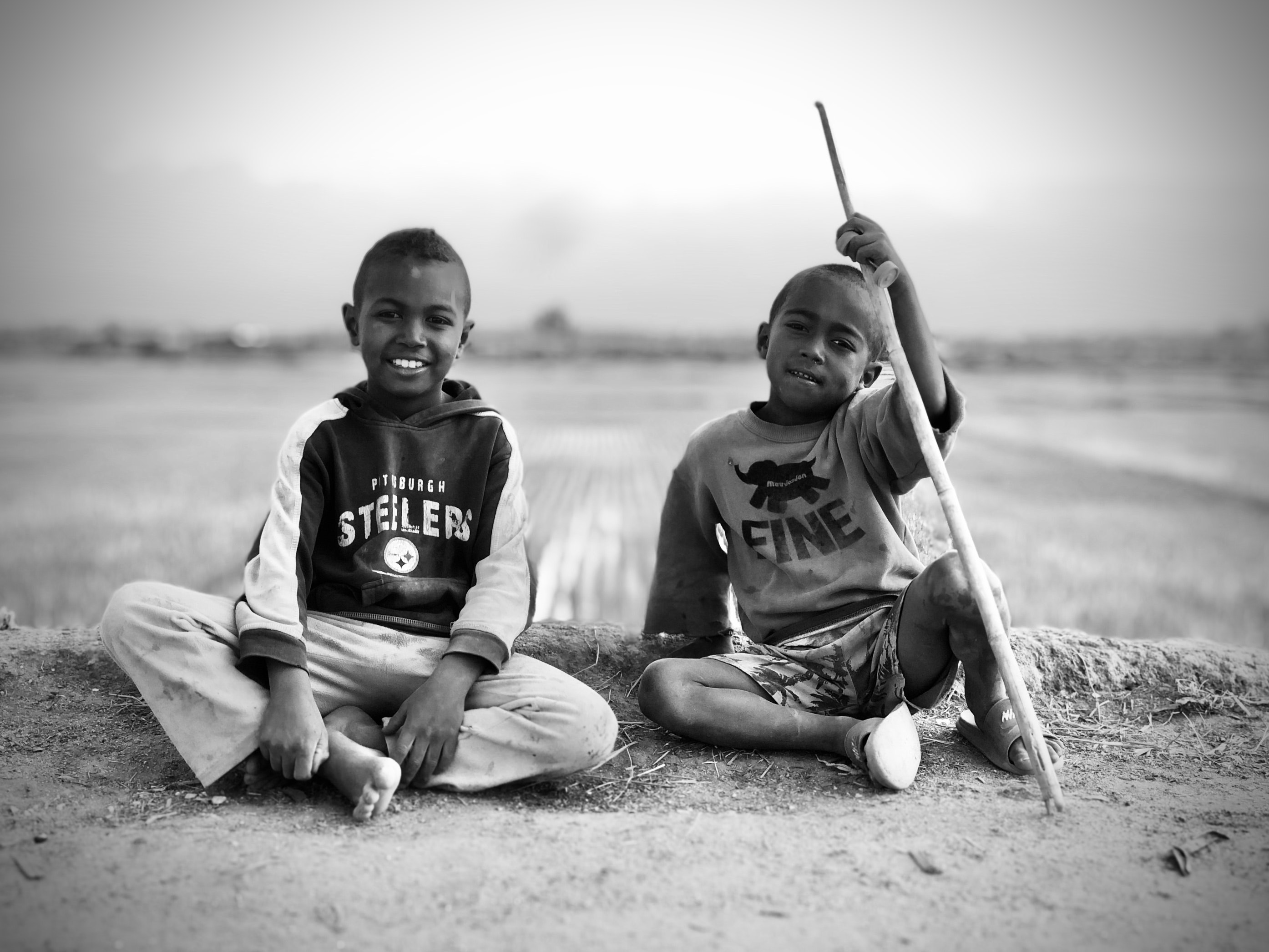
Parents of Children Infected with Zika Left Behind
By Samhar Almomani on October 25, 2022
In Brazil, a group of babies whose mothers were unfortunate enough to be infected with the virus while pregnant in a severe Zika outbreak in 2015 and 2016, are known as the “Zika babies.” These babies are usually recognized due to microcephaly, which makes their heads much smaller than usual. Their heads’ size indicates the damage the virus has had on their brains when they were still in utero.
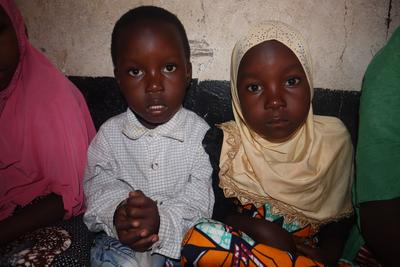
Ebola Outbreak Threatens Children’s Lives in Africa
By Samhar Almomani on October 20, 2022
Of the many people who suffer the effect of Ebola, children are usually among the most vulnerable. When the largest recorded Ebola outbreak ended, estimates put almost 20 percent of all cases occurring in children under the age of 15. Ebola affects children in many different ways, which puts them in an increasingly unstable position as the number of cases continues to climb in the region.
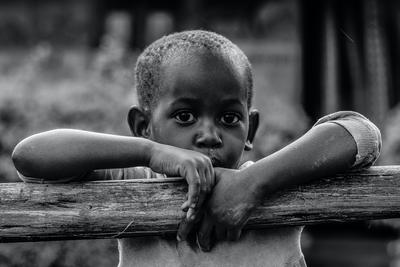
Protecting Children from Polio in Africa
By World Forgotten Children Foundation on October 11, 2022
In an opinion piece for Global Health NOW, Matshidiso Moeti describes how to achieve the elimination of poliovirus in Africa. This goal is already on track to be achieved after the announcement that Africa is able to keep children safe from the paralysis from indigenous wild poliovirus (WPV). The achievement, which was announced two years ago, was a major cause of celebration, as the region was a “certified indigenous wild poliovirus-free” zone. This was a goal that took a lot of effort and required great commitment from both the governments and the communities in the region.

Disease Spotlight: Fascioliasis
By Samhar Almomani on October 6, 2022
Fascioliasis can be found in over 70 countries globally and is present on every continent except Antarctica. The parasite is more likely to be found in places where there are large congregations of sheep or cattle. People generally become infected when eating raw watercress or other water plants that are contaminated with immature parasite larvae.
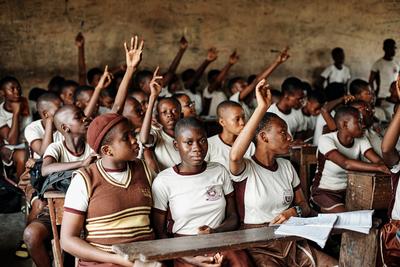
UNESCO reports 244M children will not start school this year
By Samhar Almomani on September 26, 2022
In new estimates published by UNESCO, it is evident that the many global inequities that have plagued the world are still persistent. The “Visualizing Indicators of Education for the World (VIEW) report provides estimates of two major flagship indicators: out-of -school and completion rates. 98 million children will be out of school this year in sub-Saharan Africa, making it the region with the most children and youth missing out on their education.
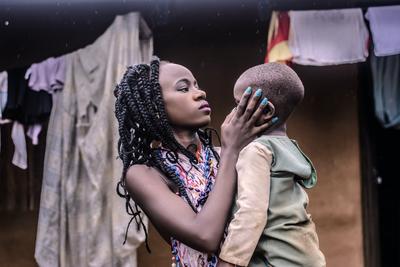
Girls Fight Back Against Genital Cutting Amid Societal Retribution
By Samhar Almomani on September 20, 2022
For years, there has been an increasing push to put an end to female genital mutilation across the developing world. This centuries-old ritual is usually carried out on girls between 4 and 14 years of age. When FGC is done initially, it can result in a lot of pain or shock. It is commonly associated with infection and blood poisoning, due to the lack of sanitation of the equipment used and is also associated with actual hemorrhage.
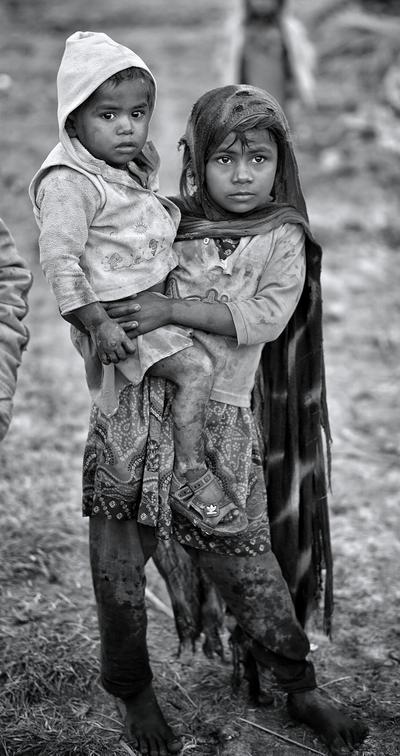
Floods in Pakistan Devastate Families and Children
By Samhar Almomani on September 12, 2022
“At least 18,000 schools have been damaged or destroyed across the country due to the floods. We estimate that 16 million children are impacted and 3.4 million of these children are in need of humanitarian support," said Abdullah Fadil, UNICEF Pakistan Representative, after the recent monsoons.
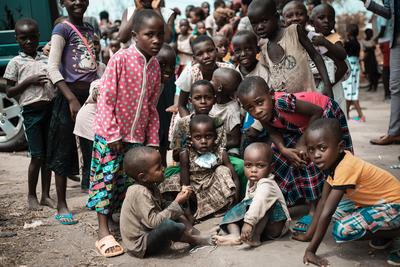
Global Alliance Launched to End AIDS in Children by 2030
By Samhar Almomani on September 6, 2022
Although antiretrovirals have increasingly become seen as life-saving medication for people living with AIDS, there has been a wide discrepancy in the number of children with AIDS receiving the medication when compared to infected adults. UNAIDS, UNICEF, WHO and other partners are teaming up to form a global alliance to put a stop to children living with HIV with no treatment and to prevent any new infant HIV infections.
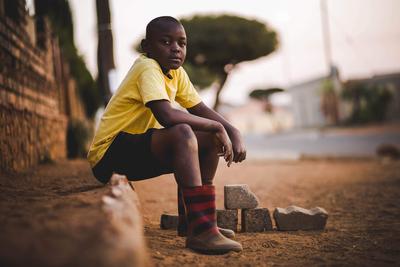
Climate Justice for People with Disabilities
By Samhar Almomani on August 29, 2022
Although the effects of climate change are likely to disproportionately affect people with disabilities (PWD), they are often left out of the conversations relating to climate justice and policy pertaining to climate change. In fact, PWD are often overlooked more than any other demographic when it comes to policy decisions, which worsens their social status and increases their struggles.
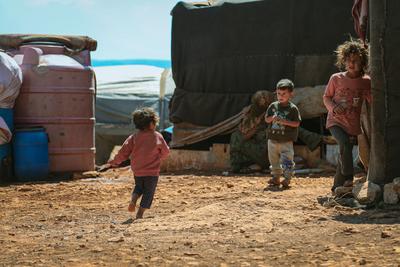
How Successful Implementation of Vitamin A Led to Reduced Child Mortality in Nepal
By Samhar Almomani on August 22, 2022
Interventions with the purpose of improving children’s nutritional intake and the status of micronutrients such as vitamin A have risen in prominence in areas of global health in recent years. This is because of an increased understanding of the effects of poor nutrition and how that can perpetuate a cycle of disease and poverty. There have been several intervention trials that have confirmed the distribution of vitamin A to high-risk populations can reduce early childhood mortality by as high as 20-30%.
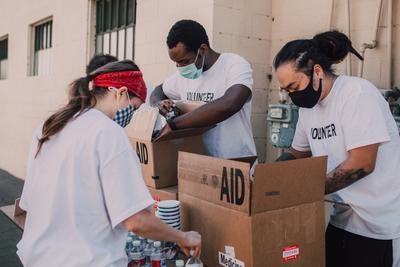
World Humanitarian Day
By World Forgotten Children Foundation on August 19, 2022
World Humanitarian Day is honored on 19 August every year in memory of the 2003 bomb attack on the Iraqi Canal Hotel in Baghdad. The attack resulted in 22 deaths, which included Sergio Vieira de Mello, the chief humanitarian in Iraq. Six years later, in 2009, the United Nations General Assembly decided to formally recognize the day as the World Humanitarian Day.

MMWR Spotlight: Progress Toward the Elimination of Mother-to-Child Transmission of Hepatitis B Virus- Worldwide, 2016-2021
By Samhar Almomani on August 15, 2022
Mother-to-child transmission (MTCT) leading to an HBV infection is often cited as a leading cause for cirrhosis and liver cancer. Children who are unvaccinated are at an increased risk of infection, with 9 out of 10 children infected at birth will become chronically infected by the virus. There are an estimated 6.4 million children that are younger than five years old that are living with chronic HBV globally. The World Health Assembly, in 2016, supported the goal to eliminate viral hepatitis as a public health threat by 2030.
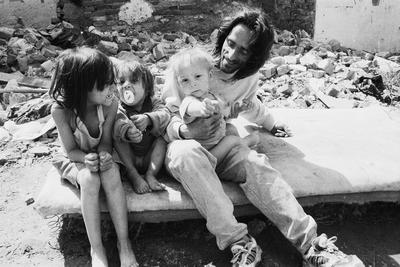
Children with Disabilities Deserve to be Seen and Heard
By Samhar Almomani on August 12, 2022
In January 2022, UNICEF was able to slightly mitigate the problem of lack of visibility in a report called “Seen, Counted, Included: Using data to shed light on the well-being of children with disabilities," where key findings were presented regarding people with disabilities. However, it also found that people with disabilities are more likely to never attend school, experience discrimination, and feel unhappy.
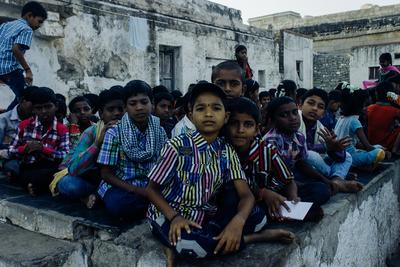
How to Reverse the Impacts of COVID on Children
By Samhar Almomani on August 8, 2022
Predictions put the best-case scenario, based on previous trends, that it will take up to eight years to somewhat recover from pandemic-induced poverty and return to pre-COVID child poverty levels. As many countries have tried to start moving on to a post-pandemic world, some countries are still struggling with many of COVID’s effects.
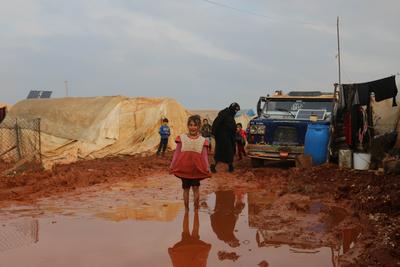
Children in low-income countries are 16 times more likely to die from a common form of eye cancer, study finds
By Samhar Almomani on August 1, 2022
A recent study published in The Lancet Global Health found that children with retinoblastoma in a low-income country are at a 16 times higher risk of dying from the condition during the three years after their diagnosis when compared to those living in high-income countries.
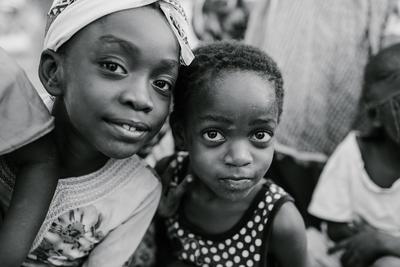
Only Half the Story: How Stigma and Discrimination Shape the Lives of Children with Disabilities
By Samhar Almomani on July 25, 2022
In many countries around the world, people with disabilities experience exclusion and discrimination due to their disability. This affects not only the people with disabilities but also their families, and it leads to a cycle of poverty perpetuated by employment and housing discrimination. There are many drivers of the stigma, which means that there is a multitude of ways to address the issue.

Disease Spotlight: Hansen’s Disease/ Leprosy
By Samhar Almomani on July 22, 2022
Leprosy is usually found in areas affected by poverty due to overcrowding and poor nutrition making people overly susceptible to the disease. Today, the disease is still a major source of disability and social ostracism. The consequences of a leprosy infection may sometimes extend beyond treatment (UCNTD).

Medical Guidelines Finally Address Care for People with Down Syndrome
By Samhar Almomani on July 18, 2022
A guide developed by the Global Down Syndrome Foundation (GLOBAL) provides a new set of guidelines to address medical needs for people with down syndrome. GLOBAL’s recommendations deal with the nine most common types of health problems that prove challenging for adults with Down syndrome.
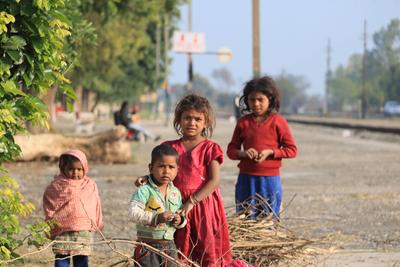
Tanzanian Children with Disabilities Trafficked and Enslaved in Kenya: A Heartbreaking Investigation
By Samhar Almomani on July 11, 2022
An investigation by BBC Africa Eye has revealed a hidden trafficking network that brings in children with disabilities from poor rural regions of Tanzania and forces them into what is nothing short of modern-day slavery, begging on the streets of Nairobi, Kenya.

Pregnancy Is a Major Risk in Sierra Leone
By Samhar Almomani on July 8, 2022
In the West African country of Sierra Leone, birthers are asked to find two units of blood before their due date by asking for donations from their families. One in 20 birthers in Sierra Leone die as a result of pregnancy or childbirth, according to estimates from the United Nations. Most of the deaths occur due to excessive blood loss.
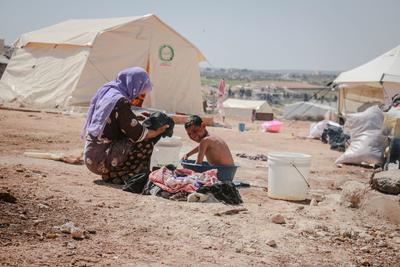
Helping Organizations Assisting Women’s Education
By Samhar Almomani on July 5, 2022
Since there is a clear connection between educating women and improving their living conditions, it is paramount to support organizations that are working on reducing the inequalities currently present in education. An example of such an organization would be Femme et Education des Adultes (FEDA), which is a nonprofit NGO established in 2007 on International Literacy Day.
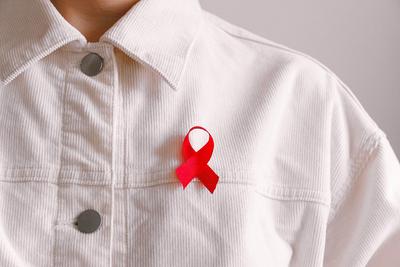
COVID Vaccines Provide Hope For HIV-Ravaged Countries
By Samhar Almomani on July 1, 2022
Across clinics in the United States, small human tests are being conducted using a new HIV vaccine technology that is inspired by the same technology that brought us the coronavirus vaccines in under a year. Even though no one expects such success with HIV, as it is a way harder enemy than COVID, it still is a promising technology that can save the lives of many.

An Effort to Improve Global Health
By Samhar Almomani on June 28, 2022
The world is connected in many ways, and what happens in one region is likely to affect another. There are many examples of global incidents that required global health interventions and collaborations between international partners. In an ever more connected world, it is paramount for us to ensure that our global health taskforce is well-equipped for challenges, such as COVID outbreaks.
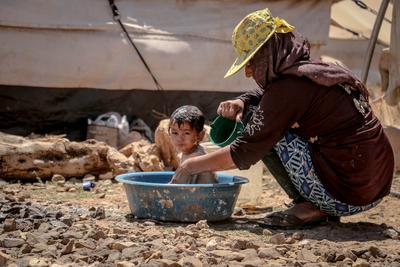
Infertility as a Neglected Disease Affecting Impoverished Countries
By Samhar Almomani on June 24, 2022
Infertility has largely been ignored in low- and middle-income countries for decades. A 2013 paper that appeared in Public Health Ethics by ethicist Marie-Eve Lemoine made the case that fertility is a human right. Although men are more likely to suffer from infertility than women, women are usually blamed for it. Lemoine emphasizes that in developing countries, women who are unable to have children are often ostracized and find themselves isolated from their communities and are likely to suffer economically when their partner leaves them.

Disease Spotlight: Trachoma
By Samhar Almomani on June 20, 2022
Trachoma is a global leading cause of preventable blindness that is spread via infectious origin. The infection is caused by the bacterium Chlamydia trachomatis, and is a disease related to water, sanitation and environmentally related hygiene. Trachoma can be spread easily through direct personal contact, shared clothes and towels, and by flies that come into contact with the eyes or nose of an infected person.
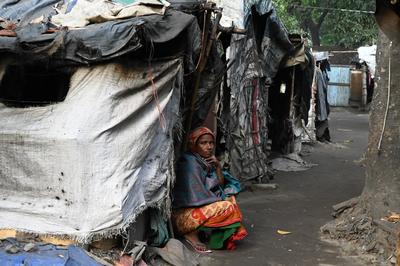
How an Increasing Population Leads to Worsening Hygiene in Slums
By Samhar Almomani on June 17, 2022
An article by Dominic Kirui appeared on Global Health NOW on March 23, 2022 that highlights how villages and slums are suffering due to the rise in population. Kirui focuses on Kibera, the largest slum in Africa, and specifically Laini Saba, a village within Kibera. Mary Ndira, who lives with her family in Kibera slums, tells Kirui of the challenges that she has to go through.

Almost one billion children and adults with disabilities and elders that need assistive technology lack access, new report finds
By Samhar Almomani on June 13, 2022
In a new report published on May 16 by the WHO and UNICEF, research revealed that more than 2.5 billion people need one or more assistive products, such as wheelchairs, spectacles and hearing aids. However, nearly one billion of them are denied access to these integral technologies, especially in low- and middle-income countries.

Sudden Infant Death Syndrome Still Plagues Many
By Samhar Almomani on June 8, 2022
On April 10, an article appeared in the Washington Post titled “Despite a decades-long effort, babies are still dying of SIDS.” The article by Marlene Cimons traces back the effort to the Safe to Sleep campaign, which was launched in 1994, and urged people to place babies on their back when they are putting them to bed and to make sure that the crib is free of anything soft that night risk infant suffocation, such as pillow, blankets or stuffed toys. In the years following that campaign, the cases of sudden infant death syndrome (SIDS) fell by more than 50 percent, but the decline has stopped.

MMWR Spotlight: West Nile Virus and Other Domestic Nationally Notifiable Arboviral Diseases— United States, 2020
By By Samhar Almomani on June 3, 2022
The Morbidity and Mortality Weekly Report (MMWR) is a weekly publication by the Centers for Disease Control and Prevention that publicizes the latest epidemiological advancements and research related to public health. In the May 6, 2022 MMWR, an article appeared discussing the arthropod-borne viruses, or arboviruses, that are transmitted to humans through the bite of mosquitoes and ticks

Sisters of Mokama and How They Changed India’s Health
By Samhar Almomani on May 31, 2022
An op-ed titled “Six Nuns Came to India to Start a Hospital. They Ended Up Changing a Country” by Jyotu Thottam appeared in the New York Times on April 2nd and seeked to describe the long-term positive impact a small group of people can affect if they set out to do it the right way.

Monkeypox: The Impact on Middle- and Low- Income Countries
By Samhar Almomani on May 23, 2022
On May 18th, 2022, Massachusetts health officials announced that they confirmed a case of monkeypox. This was the first case of this rare and, in some cases, fatal viral infection. Although stories of monkeypox infections in the United States are usually brushed off as an anomaly, this news comes amid a few clusters of infections appearing outside the area where the disease is usually found. A day before the case in the U.S., the Centers of Disease Control and Prevention (CDC) had expressed concern about an unusual outbreak of the infection in the United Kingdom, where the first outbreak was spotted.

Global Accessibility Awareness Day
By World Forgotten Children Foundation on May 19, 2022
On the third Thursday of every May, people around the world celebrate Global Accessibility Awareness Day. The day was founded by the Global Accessibility Awareness Day (GAAD) Foundation, an organization that works to promote digital accessibility, access and inclusion globally.

Chronic Non-Communicable Diseases Are Increasingly Affecting Impoverished Communities
By Samhar Almomani on May 17, 2022
In a chapter published in “Social Injustice and Public Health,” Karen R. Siegel, K.M. Venkat Narayan and Derek Yach set out to explain the social injustice seen in chronic and non-communicable disease.

Global COVID-19 Vaccination Efforts Are Losing Steam
By Samhar Almomani on May 10, 2022
Last year, the World Health Organization (WHO) started efforts to promote a standard of fully vaccinating 70 percent of every country’s population against COVID-19 by June 2022. However, with that deadline quickly approaching, it is becoming clear that the world is going to fall short of that ambitious goal.

Disease Spotlight: Typhoid Fever
By Samhar Almomani on May 2, 2022
Typhoid and paratyphoid fever are both fatal, life-threatening diseases caused by Salmonella Typhi and Salmonella Paratyphi bacteria. The bacteria can be spread by consumption of contaminated food or water and affects an estimated 11-21 million people worldwide every year. Although the disease is rare in the United States, it is very common in other parts of the world.

MMWR Spotlight: Surveillance to Track Progress Toward Polio Eradication— Worldwide, 2020-2021
By Samhar Almomani on April 29, 2022
In the April 15, 2022 MMWR, an article appeared discussing the progress towards achieving polio eradication worldwide. Since the Global Polio Eradication Initiative (GPEI) was first established in 1988, the number of polio cases has plummeted by approximately 99.99%, making the initiative a success for the most part. However, wild poliovirus (WPV) remains endemic in two countries: Pakistan and Afghanistan.

Children With Disabilities Left Behind As War In Ukraine Rages On
By Samhar Almomani on April 25, 2022
As of April 11, the United Nations Human Rights Office of the High Commissioner had recorded 4,450 civilian casualties due to the invasion of Ukraine. A total of 1,892 people were killed. Most of the civilians deceased were due to the use of explosive weapons with a wide impact area, which includes shelling from heavy artillery, multiple launch rocket systems, missiles and air strikes that kill people indiscriminately.
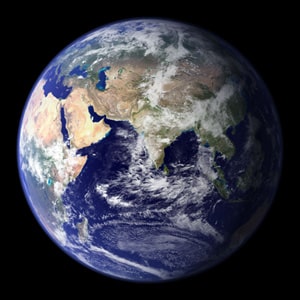
WFCF Celebrates Earth Day
By World Forgotten Children Foundation on April 22, 2022
Today, on April 22nd, the world will come together to celebrate Earth Day. The day has been celebrated at the same time every year since it first started in 1970 and was created due to an increasing amount of leaded gas being used in inefficient cars.
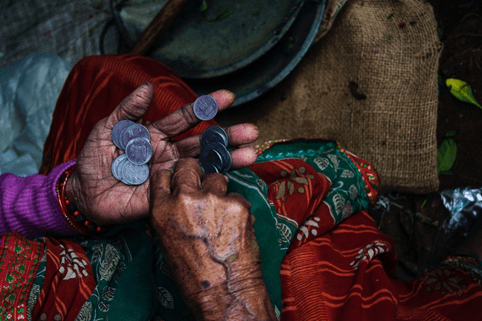
Breaking the Cycle of Poverty: A Community-Based Approach
By Samhar Almomani on April 15, 2022
A book that was originally published in 1992 by social scientists Hennie Swanepoel and Frik de Beer introduced ideas followed by community workers today about how to ensure that poverty does not continue to transcend generations.

Disease Spotlight: Chagas Disease
By Samhar Almomani on April 8, 2022
Chagas disease, also known as the “kissing disease,” is considered one of the Neglected Tropical Diseases (NTDs), which are diseases that have been forgotten by developed countries because they usually plague lower-income countries.

WFCF Sends Funds to COVAX for Equitable Vaccine Distribution
By World Forgotten Children Foundation on April 8, 2022
A year after the pandemic disrupted the lives of many, WFCF set out to raise funds to aid in the equitable distribution of COVID-19 vaccines to developing regions that have been largely left out of the global vaccine supply.

MMWR Spotlight: Progress Toward Achieving and Sustaining Maternal and Neonatal Tetanus Elimination- Worldwide, 2000-2020
By Samhar Almomani on April 1, 2022
In the March 18, 2022 MMWR, an article appeared discussing the progress achieved regarding maternal and neonatal tetanus (MNT).
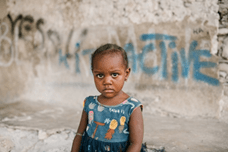
Tackling the “Brazen Trade” of Child Trafficking in Africa
By Samhar Almomani on March 30, 2022
In February 2021, the United Nations Office on Drugs and Crime (UNODC) worked with the National Agency for the Prohibition of Trafficking in Persons (NAPTIP) to present key findings announced in the UNODC Fifth Global Report on Trafficking in Persons.
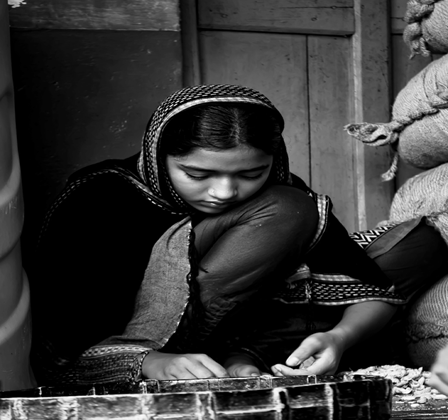
The Impact of Adolescent Pregnancy on Communities Globally
By Samhar Almomani, WFCF Blog Guest Author on March 22, 2022
Adolescent pregnancy is most often not the result of deliberate choice, but rather the absence of choices, and of circumstances beyond a girl’s control.
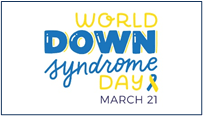
Extra Chromosome = Extraordinary
By Samhar Almomani on March 22, 2022
On March 21st the global population united to celebrate World Down Syndrome Day.
Ukraine Aid
By World Forgotten Children Foundation on March 11, 2022
We want to help but may feel overwhelmed by options of who to send aid through or where to even begin. Below are a few local (to Pennsylvania) and national organizations that you can donate to with confidence and help the people of Ukraine.
Addressing Ways to Effectively Rehabilitate and Provide Care for Children Refugees
By Samhar Almomani on March 8, 2022
The United Nations announced last year that there are more children than ever before currently living as migrants or refugees, outside of their birth countries.
Combatting the Climate Crisis and Supporting Communities in Need
By Samhar Almomani, WFCF Blog Guest Author on February 25, 2022
Because extreme weather events, such as heatwaves and heavy rain, are on the rise, it is paramount that we act quickly and set up appropriate and sustainable interventions.

Make a Donation From the Heart
By World Forgotten Children Foundation on February 18, 2022
On Valentine’s Day, World Forgotten Children Foundation kicked off their Share the Love campaign to raise funds for children and communities that could use our help.
United Nations Sustainable Development Goals
By World Forgotten Children Foundation on February 11, 2022
Five years ago, the UN announced plans for Sustainable Development Goals focused on ending poverty, zero hunger, good health and well-being, sustainable cities and communities, and climate action, amongst others.
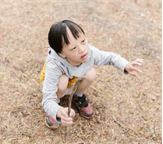
Why Is the Mission of World Forgotten Children Foundation Important?
By World Forgotten Children Foundation on January 26, 2022
In 2019 the board of WFCF realized that an expanded mission could offer a helping hand to the entire population which, in turn, would bring benefits to all.
New Year, New Initiatives
By World Forgotten Children Foundation on January 13, 2022
As we move into this new year we are pleased to share with you our 2022 plans.
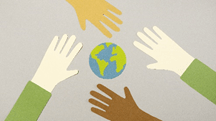
Donors. Our Most Valued Asset.
By World Forgotten Children Foundation on October 6, 2021
When deciding what worthy charitable organization you want to make contributions to, you will understandably want to see your gift at work.

What’s New at WFCF
By World Forgotten Children Foundation on September 16, 2021
Meet Erin Whitsel, WFCF’s Development Coordinator.
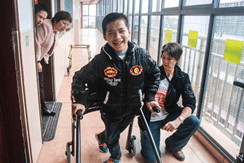
Join WFCF in Supporting Those in Need – No Contribution is Too Big or Too Small
By World Forgotten Children Foundation on September 3, 2021
WFCF currently has three funding campaigns in process to support children with disabilities in China, and also communities currently combatting the Covid-19 pandemic in Africa, and developing nations worldwide.

Creating a Safer Environment for Babies and Mothers at the Baby Box Center
By Erin Whitsel, WFCF Blog Editor on August 18, 2021
WFCF had the pleasure of providing more funds to the Jusarang Community Church to support with critical building repairs.

COVID-19 Vaccines, Variants, and the Long Road Ahead
By Lindsay Wertman, WFCF Blog Editor on August 12, 2021
Once a virus has been widely circulating in a population and causing infections, the likelihood of that virus mutating greatly increases.
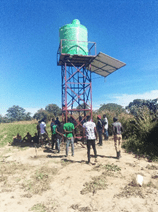
Creating Water Accessibility Through Solar Power
By World Forgotten Children Foundation on August 6, 2021
Water is an invaluable resource - used daily and integrated into every part of our lives. Our very livelihoods depend on it, and sadly, it is something heavily taken for granted by so many

World Hepatitis Day 2021 - Raising Awareness and Influencing Change
By Lindsay Wertman, WFCF Blog Editor on May 21, 2021
Although the world is currently still struggling to come out of the COVID-19 pandemic, it is important to remember other widespread diseases impacting individuals globally.

COVID-19 Vaccine Distribution: A Global Logistics Nightmare
By Lindsay Wertman, WFCF Blog Editor on February 12, 2021
In less than 12 months, research teams all over the world have worked intensely to develop safe and effective vaccines that protect from SARS-CoV-2, the virus that causes COVID-19

WFCF Funds Mobility Equipment for Children Living in China’s Hunan Province
By World Forgotten Children Foundation on November 12, 2020
For children with special needs, the equipment that they use daily is essential to their comfort and well-being and cannot be underestimated.

Giving Back on GivingTuesday – A Global Generosity Movement
By World Forgotten Children Foundation on November 12, 2020
GivingTuesday was created in 2012 with a very simple concept – designate a day that encourages people to do good.
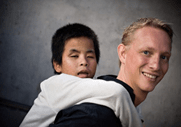
Interview With David Gotts, Founder of International China Concern
By Lindsay Wertman, WFCF Blog Editor on October 30, 2020
International China Concern (ICC) was founded in 1993 by David Gotts after he saw firsthand the suffering that so many children with disabilities in China were experiencing after being left abandoned in desperate conditions
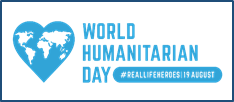
Commemorating Humanitarian Workers for More Than a Decade
By World Forgotten Children Foundation on August 24, 2020
August 19th, 2020 marked the eleventh year of World Humanitarian Day, a day that commemorates humanitarian workers killed and injured in the course of their work, and also honors all aid and health workers who continue, despite the odds, to provide life-saving support and protection to people that need it the most.

The Latest Facility Repairs at the “Baby Box” Church
By World Forgotten Children Foundation on August 24, 2020
This Spring, through a very generous donation from the Hyojin Kim Nirav Patel Foundation, WFCF allocated US$ 4,087 of the funds to go toward CCTV camera installation, a door replacement, and wall and window remodeling at the facility.

Combatting One of the Greatest Global Health Challenges and All Its Various Form
By World Forgotten Children Foundation on August 18, 2020
Even though every corner of the world is currently battling the COVID-19 pandemic, there is another major health crisis that no country is immune from and that is malnutrition.

Interview With Garry Brooks aka “Mr. Garry”, Founder of African Community Project
By Lindsay Wertman, WFCF Blog Editor on June 26, 2020
WFCF has enjoyed collaborating with Garry Brooks aka “Mr. Garry” and African Community Project for several years now and we were very fortunate to be able to learn a little bit more about him and his mission.

How Fighting to End Poverty Can Minimize COVID-19 Casualties
By Abdoul Amadou, WFCF Blog Guest Author on June 26, 2020
According to the Center for Systems Science and Engineering at Johns Hopkins University, there are nearly 9 million confirmed cases, and the number keeps growing on a daily basis.

The Unspoken Negative Impacts of COVID-19 on Non-Profit Organizations Worldwide
By Dr. Mehdi Khosrow-Pour, Executive Director of WFCF on June 24, 2020
From Syria to Sudan, there are approximately 125 million people around the world who rely on outside assistance, and unfortunately during these times, these groups of people have been given less focus due to the urgency and necessity of dealing with COVID-19.

Sorry, Not Sorry – Embracing Down Syndrome Globally
By World Forgotten Children Foundation on February 14, 2020
According to the World Health Organization, the estimated incidence of Down syndrome is between 1 in 1,000 to 1 in 1,100 live births worldwide.
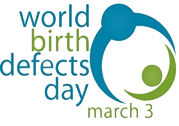
Raising Awareness on World Birth Defects Day
By World Forgotten Children Foundation on February 14, 2020
More than 10 million babies are born each year with a serious birth defect.

WFCF Seeks New Projects Under Expanded Mission
By World Forgotten Children Foundation on February 5, 2020
Recently, WFCF expanded its mission as an effort to not only support these children in need, but also the underprivileged communities that they live in.
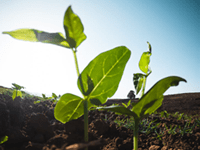
WFCF Aims to Combat Poverty Through Expanded Mission
By Saeed Otufat-Shamsi, WFCF Blog Guest Author on November 18, 2019
According to a UN report, more than 700 million people, or 10% of the world population, are living in extreme poverty, surviving on less than $1.90 USD per day.

WFCF Funds Latest Construction Project at the Baby Box Church
By World Forgotten Children Foundation on November 12, 2019
The World Forgotten Children Foundation recently had the opportunity to support another repair project at the Jusarang Community Church, also known as the “Baby Box Church.”

World Cerebral Palsy Day: Building a Community of Awareness and Support
By Josephine Dadeboe, WFCF Blog Guest Author on September 20, 2019
Some people take their mobility for granted, not realizing how much they are moving until something goes wrong or becomes increasingly difficult. For others, each day they struggle to achieve and/or maintain mobility.
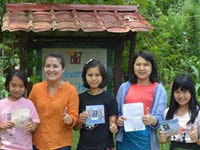
Paper Bridges: Spreading Hope to Orphans One Letter at a Time
By Josephine Dadeboe, WFCF Blog Guest Author on August 8, 2019
As human beings, hope is mentally engrained in us to help make present difficulties much easier to bear.

The Effects of Early Neglect: Addressing the Emotional Needs of Abandoned Children
By Josephine Dadeboe, WFCF Blog Guest Author on July 30, 2019
The consequences of neglect in the future could cause potential harm to the physical and emotional well-being of the neglected child as they grow older.
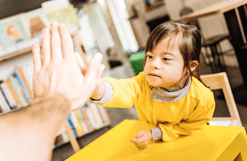
Disability Awareness Day
By Josephine Dadeboe, WFCF Blog Guest Author on July 10, 2019
While disabilities can appear in many forms, it is no surprise that disabilities affect people in different ways.
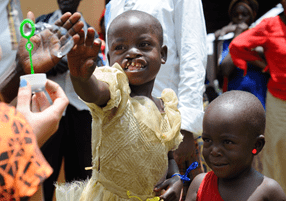
National Cleft and Craniofacial Awareness and Prevention Month
By Josephine Dadeboe, WFCF Blog Guest Author on July 2, 2019
Every year, thousands of babies, children, teens and adults are affected with cleft and craniofacial conditions in the United States.

Luke McAuley: The Wheelchair Maker
By Josephine Dadeboe, WFCF Blog Guest Author on June 19, 2019
Recently, WFCF had the pleasure of interviewing Luke McAuley about his experiences helping children in the rural parts of Kenya.
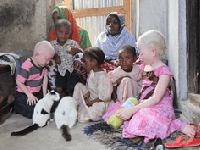
International Albinism Awareness Day
By Josephine Dadeboe, WFCF Blog Guest Author on June 13, 2019
Did you know that humans, animals and even plants can have albinism?

Understanding Spina Bifida and Its Impact on Children in Developing Countries
By Josephine Dadeboe, WFCF Blog Guest Author on May 30, 2019
In the U.S. alone, around 1,500 babies are born every year with spina bifida.

The Bamboo Project: How It is Changing Lives
By Sara Nutaitis, WFCF Blog Guest Author on May 30, 2019
The Bamboo Project is the movement of American families adopting children with Down syndrome, from China.
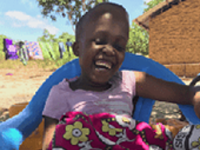
A Child’s Right to Mobility: The Importance of Wheelchairs in Developing Countries
By Josephine Dadeboe, WFCF Blog Guest Author on May 28, 2019
Whether mobility is considered a privilege or a right, some people don’t even have the chance to consider this notion in some parts of the world.

Adoption and Special Needs Children: The Numbers, Heart, and Preparation Involved
By Sara Nutaitis, WFCF Blog Guest Author on February 15, 2019
Unfortunately, even though those with their own biological children looking to adopt has become more prevalent, the overall number of adoptions in America, especially for international adoptions, has been declining.

Stopping the Stigma Together: Fighting for the Rights of People with Disabilities
By Abdoul Amadou, WFCF Blog Guest Author on February 15, 2019
Up to eight million children live in orphanages across the world, despite more than 90% having at least one living parent.

A Stairway to Hope
By World Forgotten Children Foundation on January 28, 2019
Once crumbled and cracked, the stairs leading up to the “baby box” at the Jusarang Community Church in Seoul, South Korea, can now be considered a “stairway to hope.”

WFCF is Currently Seeking New Funding Projects
By World Forgotten Children Foundation on November 23, 2018
WFCF is inviting NGOs and not-for-profit organizations to submit their project for funding consideration.

WFCF Supporting Inclusivity for Students with Disabilities in Africa
By World Forgotten Children Foundation on October 11, 2018
Educational institutions worldwide are continually striving to create the most inclusive environments possible for their students.

Addressing the Issue of Accessibility and Mobility in Developing Countries
By Sara Nutaitis, WFCF Blog Guest Author on September 21, 2018
When examining the quality of life and overall health and wellbeing of individuals with special needs across the globe, the one common factor that can greatly enhance their survival and quality of life is their access to mobility and assistive devices.

When Abandoning Your Child Is a More Loving Option Than Keeping Them
By Abdoul Amadou, WFCF Blog Guest Author on August 31, 2018
The world is witnessing more humanitarian crises than ever before. Children are being forced to become “adults” and take care of themselves and sometimes their younger siblings; at worst, they are ending up severely injured or dead.
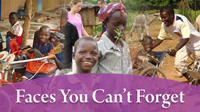
An Unforgettable Month of Giving
By World Forgotten Children Foundation on July 9, 2018
During the month of June, the World Forgotten Children Foundation (WFCF) hosted its first-ever "Faces You Can't Forget – Month of Giving."
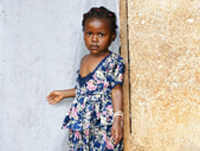
Child Mortality in Sub-Saharan Africa
By Abdoul Amadou, WFCF Blog Guest Author on July 3, 2018
Over the past several years, child mortality has started to steadily decline in virtually every country worldwide.
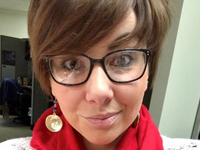
Spreading Awareness About POTS: The Life Altering Illness Impacting Kids, Adolescents, and Adults
By Sara Nutaitis, WFCF Blog Guest Author on June 22, 2018
POTS is a worldwide illness, affecting millions of people.

The Alarming Rate of Child Abandonment in Russia
By Nicole Elliott, WFCF Blog Guest Author on June 18, 2018
In Russia, nearly 30% of all children with disabilities are in state orphanages, while 95% of all orphaned children in the country have at least one living parent.
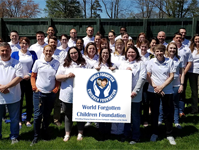
Sunshine, Smiles, and a Shared Mission
By World Forgotten Children Foundation on May 23, 2018
After a long winter, the staff at IGI Global decided to take advantage of a nice spring day and gathered together outside for a picture wearing their World Forgotten Children Foundation polo shirts.

No Child Should Have to Struggle to Fall Asleep
By World Forgotten Children Foundation on April 24, 2018
Every child deserves to sleep comfortably and soundly. For many children of the world, falling asleep is a constant struggle, especially for those with Cerebral Palsy.
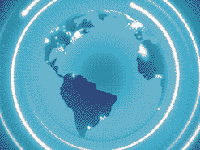
WFCF Expands Reach Across the World Wide Web
By World Forgotten Children Foundation on April 12, 2018
WFCF has registered with several giving sites, providing us with more ways to communicate with and engage the online community.
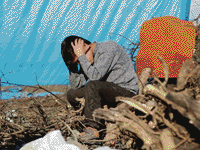
War-Torn Countries and the Rising Orphan Crisis
By World Forgotten Children Foundation on April 11, 2018
Social unrest, conflict, and tensions are on the rise all over the world, creating detrimental living conditions for children and adults.
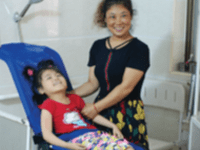
Equipment That Makes a Difference
By World Forgotten Children Foundation on April 4, 2018
WFCF and ICC are helping to provide the services and equipment needed to improve the quality of life for disabled children in China.

Looking Back, Looking Ahead: 15 Years of Supporting the Forgotten Children
By World Forgotten Children Foundation on February 21, 2018
This year, WFCF celebrates 15 years of service to the disabled orphans of the world—the forgotten.
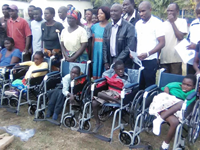
WFCF ‘Restores Integrity’ to Children of Zambia
By World Forgotten Children Foundation on February 21, 2018
For the children of the Zimba Community Forest, mobility agents are nothing short of a blessing.
The Power of Play
By Saeed Otufat-Shamsi on August 1, 2017
In a beautiful fall afternoon in an affluent neighborhood of West Vancouver where the typical conversations are around business transactions, luxury houses and cars, and lavish trips, I met with a young couple that had a very specific concern.
Why Don’t We Say “Thank You” More Often?
By Gary James on February 1, 2017
In our own ways, all of us give thanks.
Reflections on the Meaning of Life
By Charles L. Kern on August 1, 2016
As the years have come and gone, I sometimes look back at my life so far, and the life of friends and others that I have known, and ask the question, "What Is the Meaning of Life?"
We Can Light up Darkness!
By Rev. Michael Gingrich on February 1, 2016
“But every child around the world deserves that kind of care and support. Every child around the world deserves to see light in the circumstances of his or her life.”
Developmental Disabilities in Children Across Different Cultures
By Saeed Otufat-Shamsi on August 1, 2015
The integration of a disabled child is not the norm in many cultures.
Achieving World Peace
By Gary James on February 1, 2015
Meeting the basic needs of suffering children who are disabled and orphaned requires more of us than giving our time and money.
The Mission of the World Forgotten Children Foundation (WFCF)
By Charles Kern on August 1, 2014
In many of the world’s cultures, especially in the cultures that are served by WFCF, just surviving from day to day is a struggle.
The Life and Hope They Deserve
By Rev. Michael Gingerich on February 1, 2014
There are far too many children around the world who don’t have that support nor the excellent care they need to thrive, to be strong or to grow into their potential.
Why Is the Sky Blue?
By Saeed Otufat-Shamsi on August 1, 2013
Not all the children are receiving the care and attention that they require.
A Simple Act of Kindness
By Dr. Mehdi Khosrow-Pour, Executive Director on August 1, 2013
There are many children around the world who are born into loving families, but regrettably, this is not always the case.
The Great Divide: Technological Growth and the Increasing Gap between Rich and Poor Nations
By Kristin Klinger on August 1, 2010
For populations around the world lacking technology, the gap of the have’s and have not’s is deafeningly clear and carries with it serious repercussions to the people of less fortunate regions.
We Are All One
By Gary James on April 1, 2010
When we see that everything in our universe in connected, even levels that we cannot perceive, we realize living separately is fiction.
Why Do I Serve on the Board of WFCF?
By Rev. Michael D. Gingerich on August 1, 2009
I serve on the board of WFCF to be a voice for so many other children whose stories need to be told, whose lives need to be touched.
Global Economic Uncertainty and Plight of Less Fortunate
By World Forgotten Children Foundation on February 1, 2009
As the realities of the worldwide economic downturn become more apparent with each passing day, it is often a challenge to look for the positive aspects of our lives and the world around us.
Visions of Change
By Tom Campton on February 1, 2009
The following excerpt is from an article written by Dr. David Vader, a member of Messiah College’s Collaboratory for Strategic Partnerships and Applied Research.
On Making a Difference
By Dr. Mohammad Dadashzadeh, Oakland University on August 1, 2008
Never underestimate the power of one.
Plight of Handicapped Children
By Dr. Mehdi Khosrow-Pour, Executive Director on August 1, 2008
In a world where many children are dealing with poverty and despair, handicapped orphaned children in third world countries are among those who are facing the most difficult and cruel realities of life.
One Brick at a Time
By Gary James on April 1, 2008
From children being sold into sex slavery in Vietnam to victims of racial and ethnic cleansing in Africa and Europe, one might conclude that our human existence has never been devalued to such an extent.
What Really Matters Is Helping Others Win
By Rev. Michael Gingerich on August 1, 2007
The late Fred Rogers, Mister Rogers, to generations of children and their parents, had a simple, yet deeply profound way of teaching about life’s most important and vital lessons.
Why Do It?
By World Forgotten Children Foundation on May 1, 2007
The mission of WFCF is to provide medical care and treatment to orphaned and abandoned children in third world countries. Why do it? Why do we do it? Why should you do it?
Axis of Goodness
By Dr. Mehdi Khosrow-Pour, Executive Director on November 1, 2006
The Axis of Goodness refers to three major components of all kindness and compassion provided to those around the world. These components are referred to as “Supporters,” “Providers,” and “Facilitators.”
Message from the President of WFCF
By Beth A. Peiffer, Past President on February 1, 2006
“We see the world not as it is, but as we are.”
The Tax and Other Benefits of Charitable Gifts
By World Forgotten Children Foundation on February 1, 2006
Charitable giving can benefit both the recipient and the donor.
Message from the President of WFCF
By Beth A. Peiffer, Past President on September 1, 2005
When we stop to reflect upon this reality, we realize how fortunate we are to have food, clothing, shelter, family, jobs, infinite opportunities, and most importantly, our health.
HIV/AIDS in Africa
By Gary James and Rev. Michael Gingerich on September 1, 2005
HIV/AIDS is decimating Africa and help is needed urgently to begin to stop this pandemic from destroying the present and the future of this great and beautiful continent.
Message from the President of WFCF
By Beth A. Peiffer, Past President on April 1, 2005
There is an unimaginable degree of joy in seeing a smile on the face of a child, particularly if that child happens to live in an unequipped orphanage home for physically or mentally challenged children.
More Blog Posts
- Tanzanian Children with Disabilities Trafficked and Enslaved in Kenya: A Heartbreaking Investigation
- Message from the President of WFCF

WFCF Newsletter, Vol. 19 No. 4
By World Forgotten Children Foundation on December 19, 2024
In This Issue:
- Promoting Inclusive Learning for Children With Disabilities in Uganda
- Startling Orphan Statistics in Tanzania: Addressing the Crisis and How to Help
- The Impact of Poverty on Children’s Risk of Cleft Lip and Cleft Palate
- A Journey of Perseverance: Promoting Opportunities for People With Disabilities

WFCF Newsletter, Vol. 19 No. 3
By World Forgotten Children Foundation on September 1, 2024
In This Issue:
- The Urgent Need for Clean Water in Africa
- The Crucial Link Between Poverty and Disability
- How Your Support Can Change the Lives of Children With Clubfoot
- Harnessing Extended Reality to Enhance the Lives of Children With Disabilities

WFCF Newsletter, Vol. 19 No. 2
By World Forgotten Children Foundation on June 1, 2024
In This Issue:
- The Importance of Digital Accessibility and Inclusive Design
- Understanding Albinism: Shedding Light on a Hidden Condition
- From Orphanages to Loving Homes: Advocating for Children with Disabilities Through Adoption
- Celebrating World Down Syndrome Day 2024 by Ending The Stereotypes
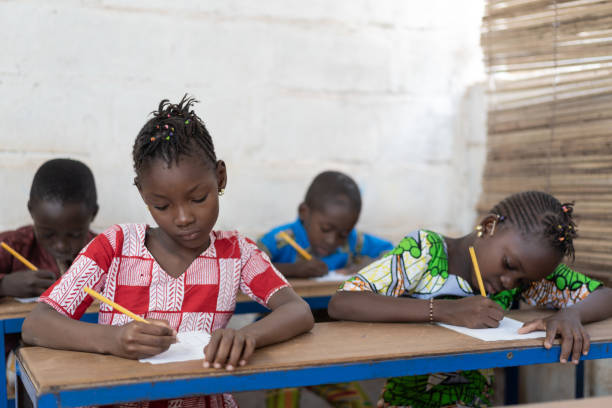
WFCF Newsletter, Vol. 19 No. 1
By World Forgotten Children Foundation on March 1, 2024
In This Issue:
- International Day of Education 2024: "Learning for Lasting Peace"
- The Power of Play’s Sensory Playground for the Maasai Community
- Update on the Solar-Powered Water System Project in the Zimba District
- An Interview With Reza Marvasti, CEO and Founder of The Power of Play

WFCF Newsletter, Vol. 18 No. 3
By World Forgotten Children Foundation on December 1, 2023
In This Issue:
- Embracing Diversity: The Importance of Inclusiveness for Disabled Children in Society
- What is the Outlook for Disabled Children in Orphanages?
- WFCF's Contribution Fuels The Power of Play's Mission in the Maasai Community
- Kocebuka Community Foundation’s Fight Against COVID-19 in Zambia
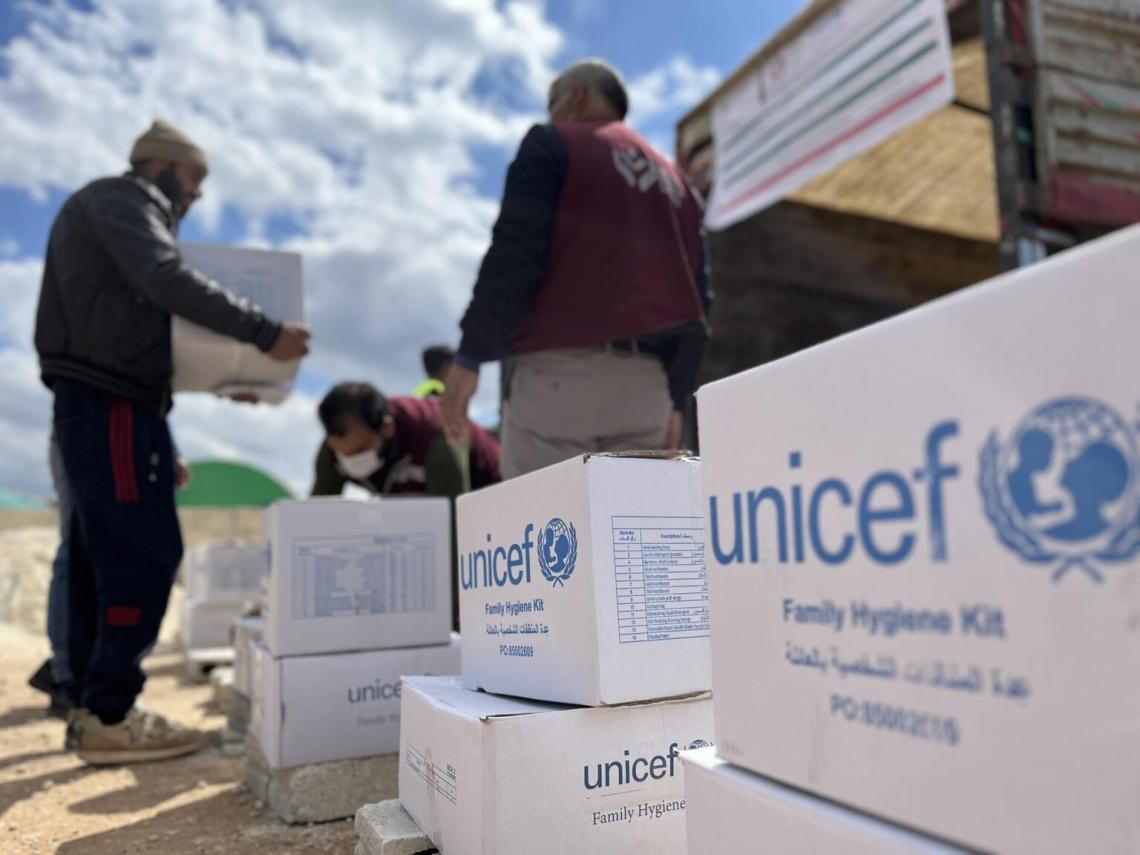
WFCF Newsletter, Vol. 18 No. 2
By World Forgotten Children Foundation on June 1, 2023
In This Issue:
- Supporting Children at Risk from Syria and Türkiye Earthquake Devastation
- Children in Sudan at Risk at Conflict Continues
- The Negative Impact of Water Access to Children in Poor Countries
- Why it is Important to Support Children that are Orphaned and are Living with Disabilities in Poor Countries?

WFCF Newsletter, Vol. 18 No. 1
By World Forgotten Children Foundation on March 1, 2023
In This Issue:
- UN Report Shows a Child or Youth Dying Every 4.4 Seconds in 2021
- Syrian Children Struggle as Educational System Perishes: The Devastating Effects of the Earthquake on Children
- Catastrophic Earthquake Devastates Turkey, Syria: Families and Children Scramble for Survival

WFCF Newsletter, Vol. 17 No. 6
By World Forgotten Children Foundation on December 1, 2022
In This Issue:
- Disability Rights Advocate Ben Mattlin Interview with WFCF
- Inflation Continues to Impact Nonprofit Organizations
- Ebola Outbreak Threatens Children’s Lives in Africa
- Climate Crisis Threatens the Horn of Africa
- Parents of Children Infected with Zika Left Behind

WFCF Newsletter, Vol. 17 No. 5
By World Forgotten Children Foundation on October 1, 2022
In This Issue:
- Floods in Pakistan Devastate Families and Children
- UNESCO Reports 244M Children Will Not Start School This Year
- Climate Justice for People with Disabilities
- Global Alliance Launched to End AIDS in Children by 2030
- How Successful Implementation of Vitamin A Led to Reduced Child Mortality in Nepal

WFCF Newsletter, Vol. 17 No. 4
By World Forgotten Children Foundation on August 1, 2022
In This Issue:
- Tanzanian Children with Disabilities Trafficked and Enslaved in Kenya: A Heartbreaking Investigation
- Only Half the Story: How Stigma and Discrimination Shape the Lives of Children with Disabilities
- Children in Low-Income Countries Are 16 Times More Likely to Die From A Common Form of Eye Cancer, Study Finds
- Children with Disabilities Deserve to be Seen and Heard

WFCF Newsletter, Vol. 17 No. 3
By World Forgotten Children Foundation on June 1, 2022
In This Issue:
- One Billion Children and Adults With Disabilities and Elders That Need Assistive Technology Lack Access
- Chronic Non-Communicable Diseases Are Increasingly Affecting Impoverished Communities
- Sisters of Mokama and How They Changed India's Health
- Global COVID-19 Vaccination Efforts Are Losing Steam
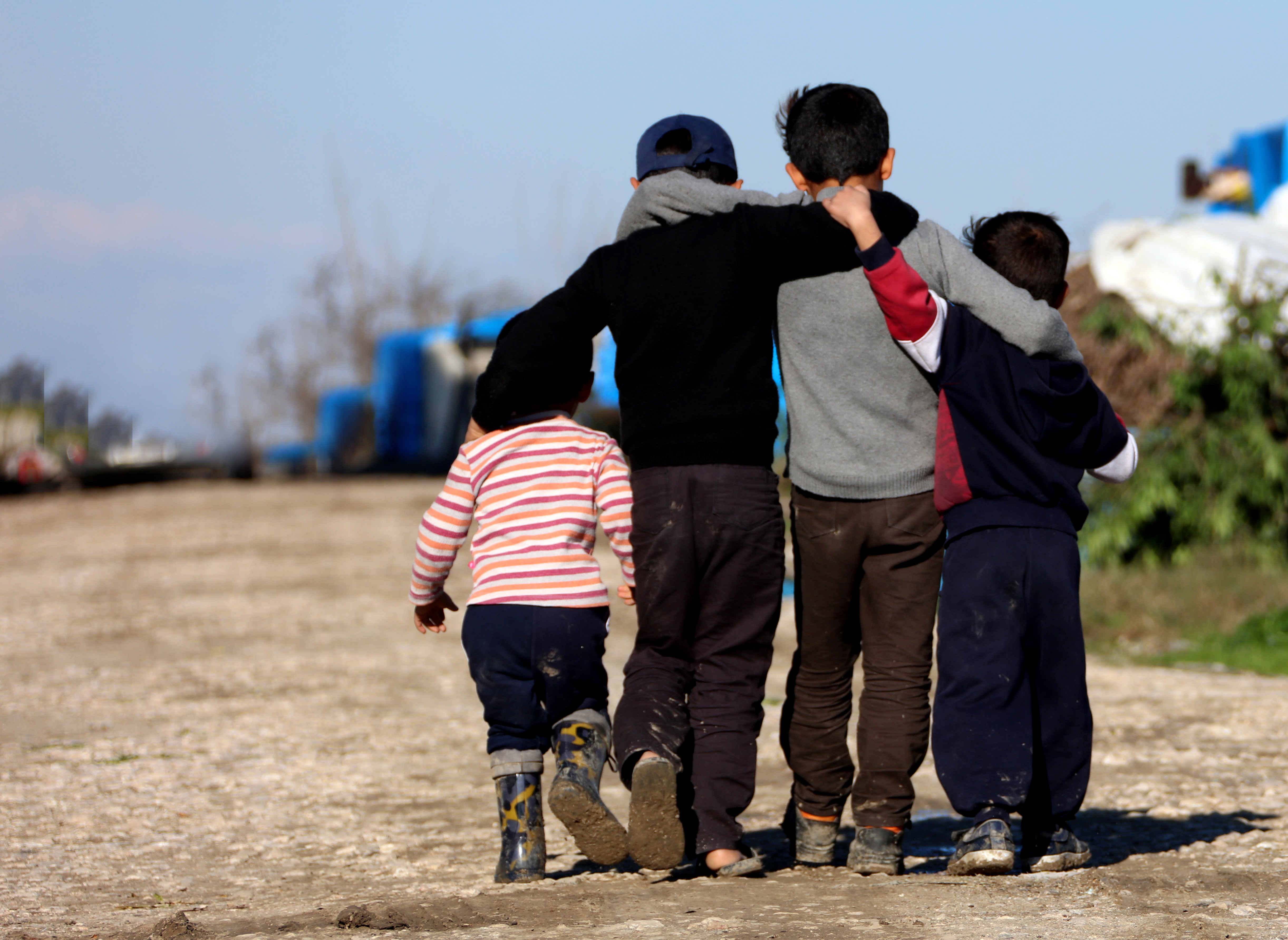
WFCF Newsletter, Vol. 17 No. 2
By World Forgotten Children Foundation on April 1, 2022
In This Issue:
- WFCF Sends Funds to COVAX for Equitable Vaccine Distribution
- Addressing Ways to Effectively Rehabilitate and Provide Care for Children Refugees
- Ukraine Aid
- Combatting the Climate Crisis and Supporting Communities in Need

WFCF Newsletter, Vol. 17 No. 1
By World Forgotten Children Foundation on February 1, 2022
In This Issue:
- Make a Donation From the Heart
- Why Is the Mission of World Forgotten Children Foundation Important?
- United Nations Sustainable Development Goals
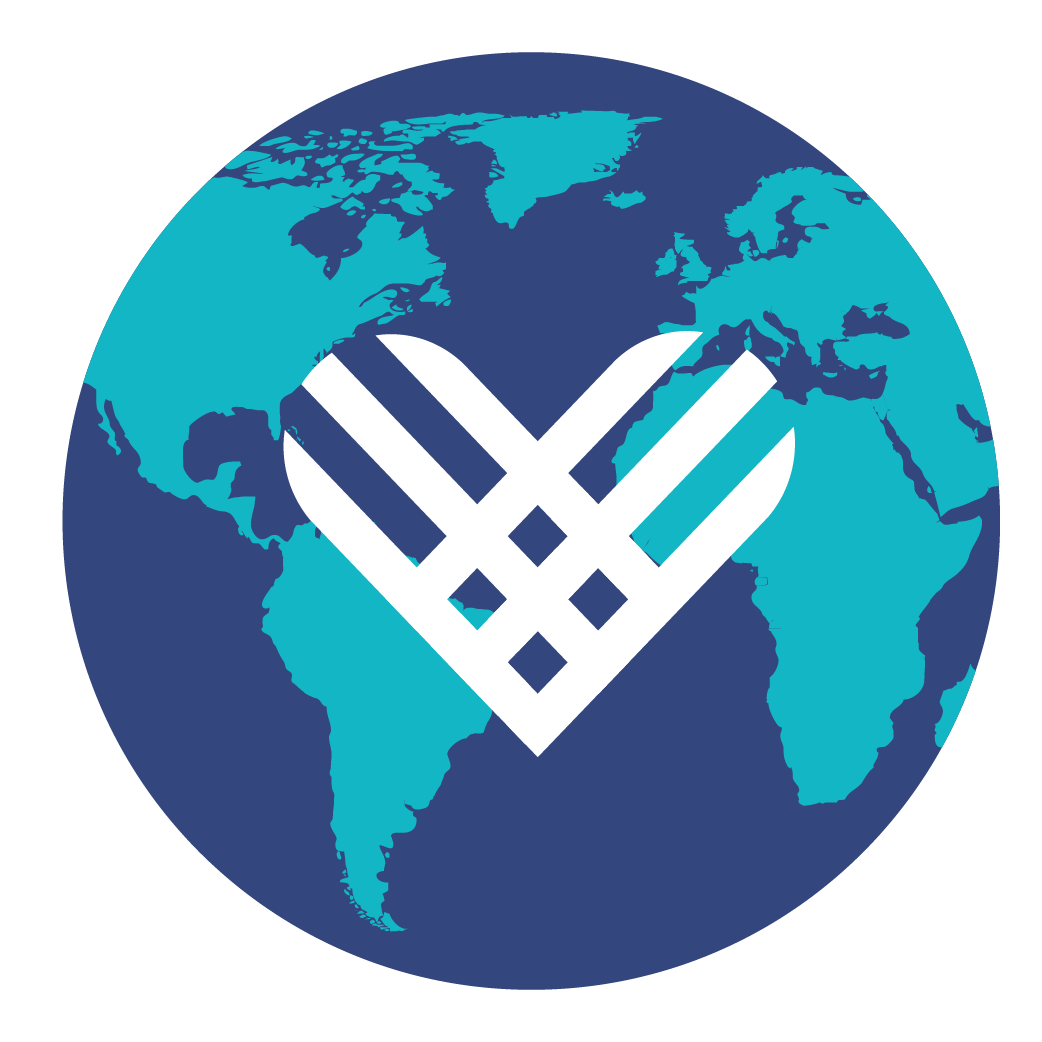
WFCF Newsletter, Vol. 16 No. 4
By World Forgotten Children Foundation on November 1, 2021
In This Issue:
- Mark Your Calendars for Giving Tuesday on November 30th!
- Join WFCF in Supporting Those in Need
- Donors: Our Most Valued Asset

WFCF Newsletter, Vol. 16 No. 3
By World Forgotten Children Foundation on August 1, 2021
In This Issue:
- Creating Water Accessibility Through Solar Power: WFCF Partners with African Community Project to Progress Sustainability Initiatives
- Creating a Safer Environment for Babies and Mothers at the Baby Box Center
- COVID-19 Vaccines, Variants, and the Long Road Ahead WFCF’s Quest to Support Developing Regions Through the Pandemic

WFCF Newsletter, Vol. 16 No. 2
By World Forgotten Children Foundation on May 1, 2021
In This Issue:
- WFCF Still Actively Raising Funds for Covid-19 Vaccine Distribution
- WFCF Launches New Funding Campaign for the Distribution of Medical and Therapy Equipment to Children in China
- World Hepatitis Day 2021 - Raising Awareness and Influencing Change

WFCF Newsletter, Vol. 16 No. 1
By World Forgotten Children Foundation on February 1, 2021
In This Issue:
- COVID-19 Vaccine Distribution: A Global Logistics Nightmare
- Supporting COVID-19 Vaccine Accessibility for Underprivileged Communities in Developing Countries Around the World
- Aiding Medical Resources Distribution in the Republic of Zambia

WFCF Newsletter, Vol. 15 No. 4
By World Forgotten Children Foundation on November 1, 2020
In This Issue:
- WFCF Funds Mobility Equipment for Children Living in China’s Hunan Province
- Interview With David Gotts, Founder of International China Concern
- Giving Back on GivingTuesday – A Global Generosity Movement

WFCF Newsletter, Vol. 15 No. 3
By World Forgotten Children Foundation on August 1, 2020
In This Issue:
- The Latest Facility Repairs at the “Baby Box” Church
- Combatting One of the Greatest Global Health Challenges and All Its Various Form
- Commemorating Humanitarian Workers for More Than a Decade

WFCF Newsletter, Vol. 15 No. 2
By World Forgotten Children Foundation on June 1, 2020
In This Issue:
- The Unspoken Negative Impacts of COVID-19 on Non-Profit Organizations Worldwide
- How Fighting to End Poverty Can Minimize COVID-19 Casualties
- Interview With Garry Brooks aka “Mr. Garry”, Founder of African Community Project

WFCF Newsletter, Vol. 15 No. 1
By World Forgotten Children Foundation on February 1, 2020
In This Issue:
- WFCF Seeks New Projects Under Expanded Mission
- Sorry, Not Sorry – Embracing Down Syndrome Globally
- Raising Awareness on World Birth Defects Day

WFCF Newsletter, Vol. 14 No. 4
By World Forgotten Children Foundation on November 1, 2019
In This Issue:
- WFCF Aims to Combat Poverty Through Expanded Mission
- WFCF Funds Latest Construction Project at the Baby Box Church
- World Cerebral Palsy Day: Building a Community of Awareness and Support

WFCF Newsletter, Vol. 13 No. 3
By World Forgotten Children Foundation on August 1, 2019
In This Issue:
- Luke McAuley: The Wheelchair Maker
- The Effects of Early Neglect: Addressing the Emotional Needs of Abandoned Children
- Paper Bridges: Spreading Hope to Orphans One Letter at a Time

WFCF Newsletter, Vol. 13 No. 2
By World Forgotten Children Foundation on June 1, 2019
In This Issue:
- A Child’s Right to Mobility: The Importance of Wheelchairs in Developing Countries
- The Bamboo Project: How It is Changing Lives
- Understanding Spina Bifida and Its Impact on Children in Developing Countries

WFCF Newsletter, Vol. 13 No. 1
By World Forgotten Children Foundation on February 1, 2019
In This Issue:
- A Stairway to Hope
- Stopping the Stigma Together: Fighting for the Rights of People with Disabilities
- Adoption and Special Needs Children: The Numbers, Heart, and Preparation Involved
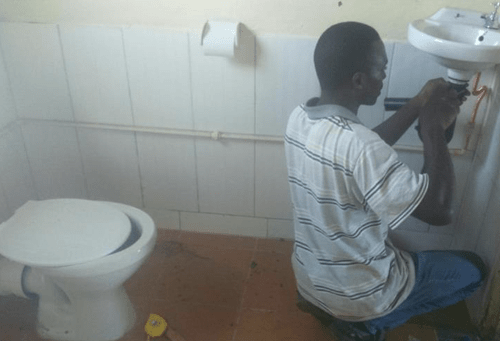
WFCF Newsletter, Vol. 12 No. 4
By World Forgotten Children Foundation on October 1, 2018
In This Issue:
- WFCF Supporting Inclusivity for Students with Disabilities in Africa
- When Abandoning Your Child Is a More Loving Option Than Keeping Them
- Addressing the Issue of Accessibility and Mobility in Developing Countries

WFCF Newsletter, Vol. 12 No. 3
By World Forgotten Children Foundation on July 1, 2018
In This Issue:
- An Unforgettable Month of Giving
- Spreading Awareness About POTS: The Life Altering Illness Impacting Kids, Adolescents, and Adults
- The Alarming Rate of Child Abandonment in Russia
- Child Mortality in Sub-Saharan Africa
- Sunshine, Smiles, and a Shared Mission
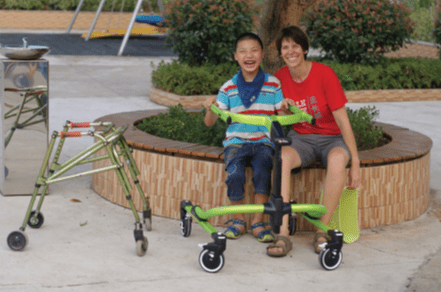
WFCF Newsletter, Vol. 12 No. 2
By World Forgotten Children Foundation on April 1, 2018
In This Issue:
- No Child Should Have to Struggle to Fall Asleep
- War-Torn Countries and the Rising Orphan Crisis
- Equipment That Makes a Difference
- WFCF Expands Reach Across the World Wide Web

WFCF Newsletter, Vol. 12 No. 1
By World Forgotten Children Foundation on February 1, 2018
In This Issue:
- WFCF “Restores Integrity” to Zambian Children
- Looking Back, Looking Ahead: 15 Years of Supporting the Forgotten Children
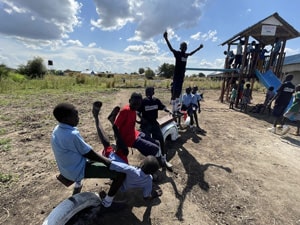
WFCF Newsletter, Vol. 11 No. 2
By World Forgotten Children Foundation on August 1, 2017
In This Issue:
- The Power of Play
- African Community Project: Supporting the Children of Chibolya Community School
- Under The Same Sun: Learning Aids for Orphaned and Visually Impaired Children in Tanzania
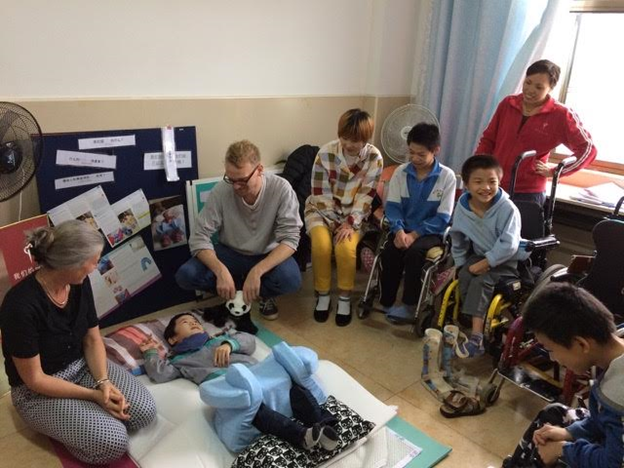
WFCF Newsletter, Vol. 11 No. 1
By World Forgotten Children Foundation on February 1, 2017
In This Issue:
- Why Don’t We Say “Thank You” More Often?
- International China Concern
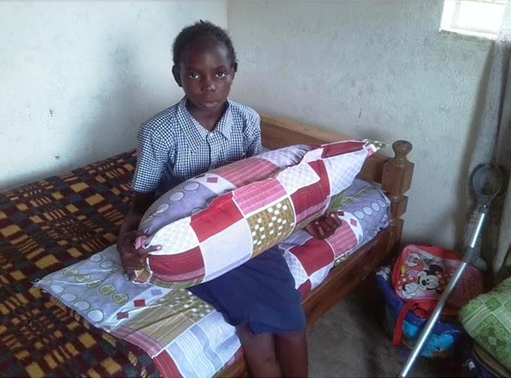
WFCF Newsletter, Vol. 10 No. 2
By World Forgotten Children Foundation on August 1, 2016
In This Issue:
- Reflections on the Meaning of Life
- African Community Project (ACP)

WFCF Newsletter, Vol. 10 No. 1
By World Forgotten Children Foundation on February 1, 2016
In This Issue:
- We Can Light Up Darkness!
- Raising Hope, Ukraine Project

WFCF Newsletter, Vol. 9 No. 2
By World Forgotten Children Foundation on August 1, 2015
In This Issue:
- Raising Hope, Inc.
- Developmental Disabilities in Children Across Different Cultures
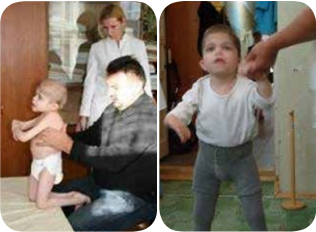
WFCF Newsletter, Vol. 9 No. 1
By World Forgotten Children Foundation on February 1, 2015
In This Issue:
- Achieving World Peace
- WFCF is Pleased to Announce the Funding of US$12,825.00 in Support of the Project Believe - Diema’s Dream Foundation in the Russian Federation

WFCF Newsletter, Vol. 8 No. 2
By World Forgotten Children Foundation on August 1, 2014
In This Issue:
- The Mission of the World Forgotten Children Foundation (WFCF)
- WFCF is Pleased to Announce the Funding ($US 13,500) of a 15-Passenger Van for the Baby Box Church in Seoul, Korea
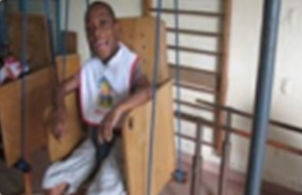
WFCF Newsletter, Vol. 8 No. 1
By World Forgotten Children Foundation on February 1, 2014
In This Issue:
- The Life and Hope They Deserve
- Chinese Abandoned and Handicapped Orphans
- WFCF Funds CESEH in Abidjan, Africa

WFCF Newsletter, Vol. 7 No. 1
By World Forgotten Children Foundation on August 1, 2013
In This Issue:
- Why Is The Sky Blue?
- A Simple Act of Kindness

WFCF Newsletter, Vol. 6 No. 2
By World Forgotten Children Foundation on August 1, 2010
In This Issue:
- The Great Divide
- Social Welfare of Russian Children

WFCF Newsletter, Vol. 6 No. 1
By World Forgotten Children Foundation on April 1, 2010
In This Issue:
- We Are All One
- How Diema's Dream Foundation (DDF) Was Founded

WFCF Newsletter, Vol. 5 No. 2
By World Forgotten Children Foundation on August 1, 2009
In This Issue:
- Why Do I Serve on the Board of WFCF?
- Something to Think About
- The Amani Children’s Foundation-Kenya
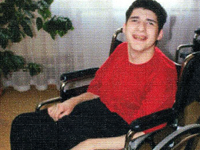
WFCF Newsletter, Vol. 5 No. 1
By World Forgotten Children Foundation on February 1, 2009
In This Issue:
- Visions of Change
- Global Economic Uncertainty and Plight of Less Fortunate
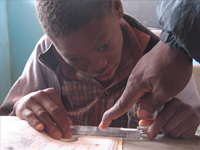
WFCF Newsletter, Vol. 4 No. 2
By World Forgotten Children Foundation on August 1, 2008
In This Issue:
- On Making A Difference
- Plight of Handicapped Children
- Handicapes en Avant Project (Part III)
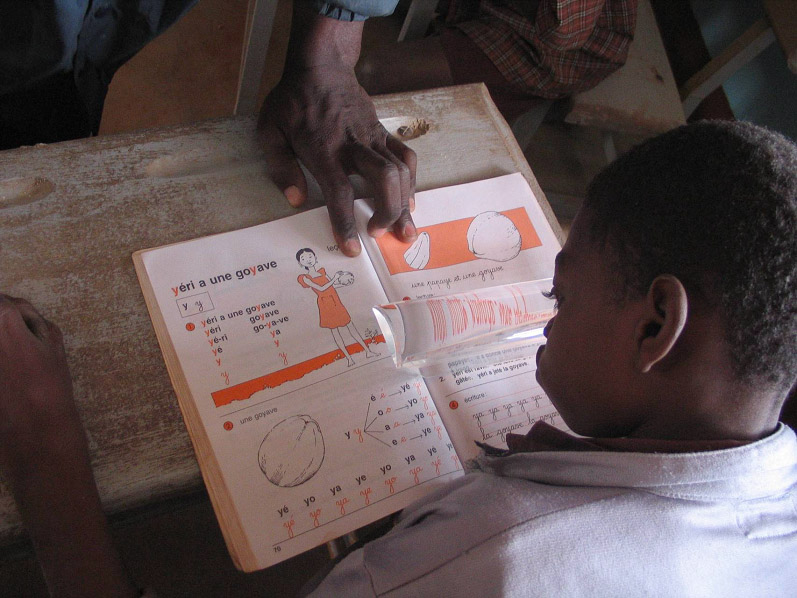
WFCF Newsletter, Vol. 4 No. 1
By World Forgotten Children Foundation on April 1, 2008
In This Issue:
- One Brick at a Time
- WFCF Mission
- Call For Assistance
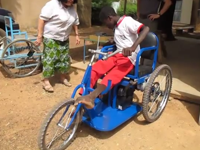
WFCF Newsletter, Vol. 3 No. 2
By World Forgotten Children Foundation on August 1, 2007
In This Issue:
- What Really Matters Is Helping Others Win
- WFCF Mission
- Handicapes en Avant Project (Part II)
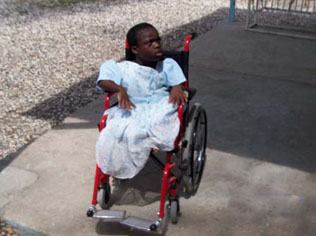
WFCF Newsletter, Vol. 3 No. 1
By World Forgotten Children Foundation on May 1, 2007
In This Issue:
- Why Do It?
- WFCF Mission
- Mercy and Sharing Foundation
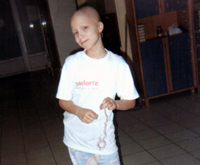
WFCF Newsletter, Vol. 2 No. 2
By World Forgotten Children Foundation on November 1, 2006
In This Issue:
- Axis of Goodness
- WFCF Mission
- Cancer Recovery Foundation International (CRFI) Project
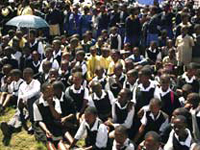
WFCF Newsletter, Vol. 2 No. 1
By World Forgotten Children Foundation on February 1, 2006
In This Issue:
- Message from the President of WFCF
- WFCF Mission
- The Tax and Other Benefits of Charitable Gifts
- African Children With AIDS Project

WFCF Newsletter, Vol. 1 No. 2
By World Forgotten Children Foundation on September 1, 2005
In This Issue:
- Message from the President of WFCF
- WFCF Mission
- HIV/AIDS in Africa
- Handicapes en Avant Project
- Ukrainian Children Project

WFCF Newsletter, Vol. 1 No. 1
By World Forgotten Children Foundation on April 1, 2005
In This Issue:
- Message from the President of WFCF
- WFCF Missions
- WFCF Helps Handicapes en Avant in West Africa


